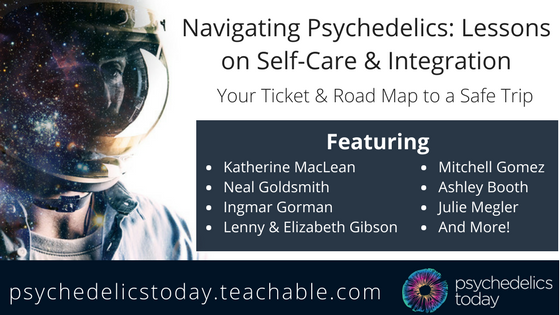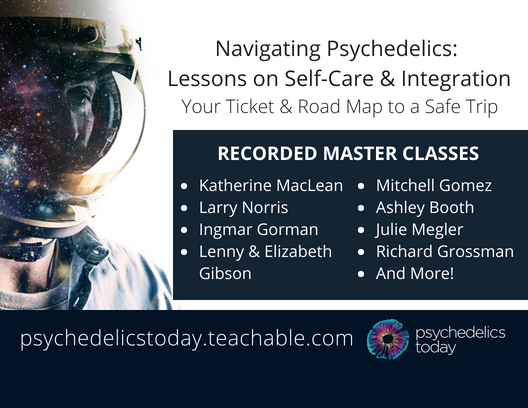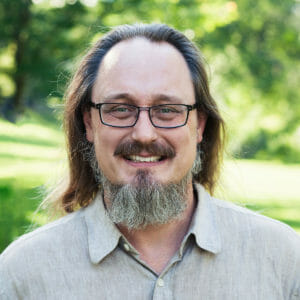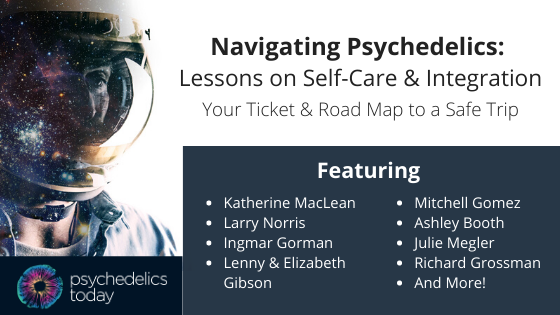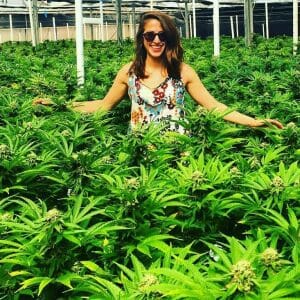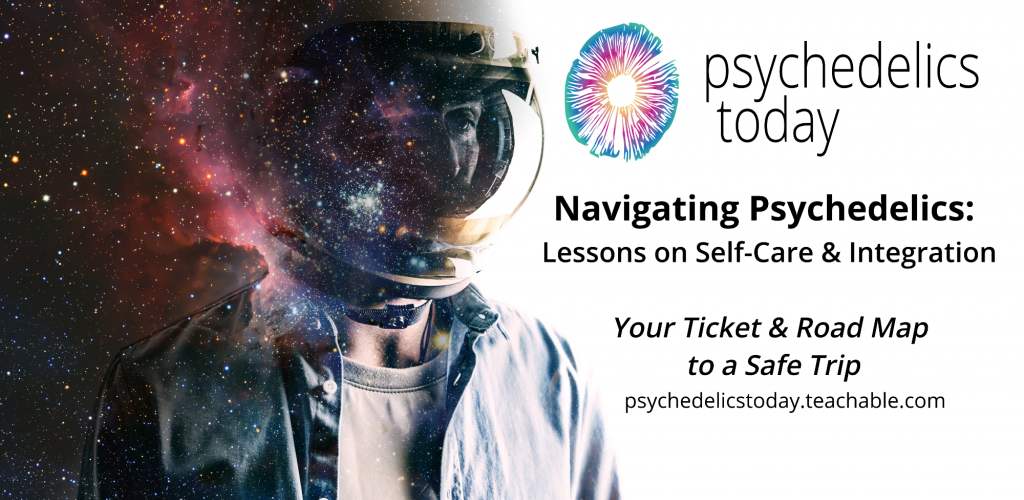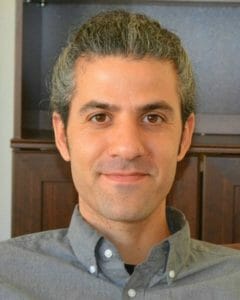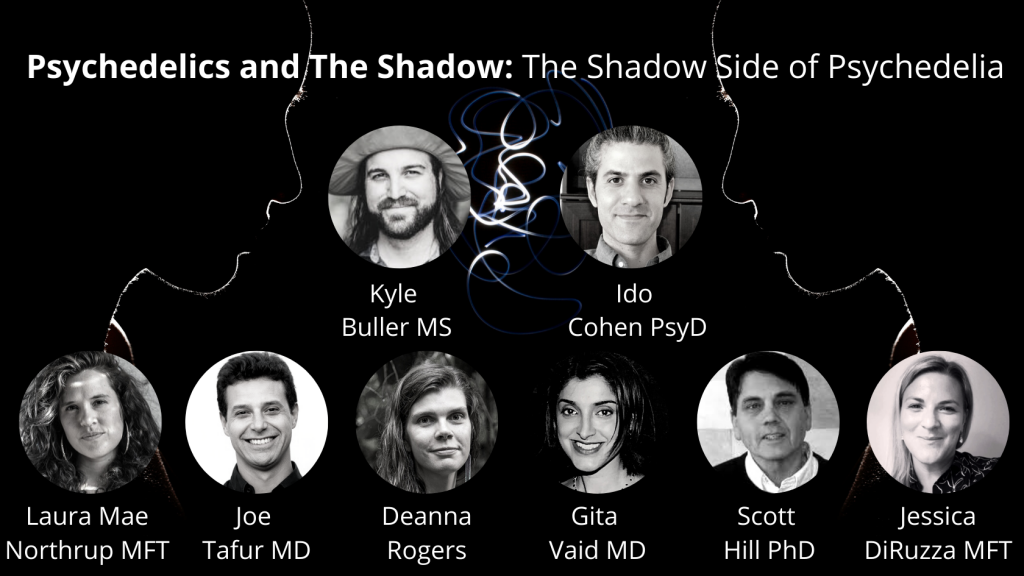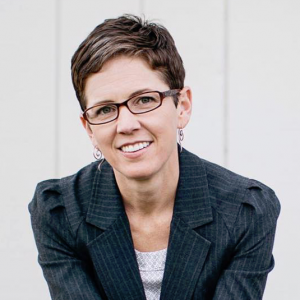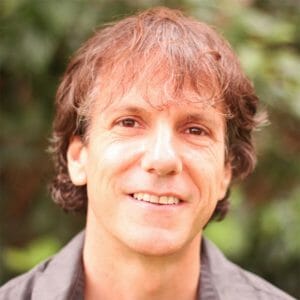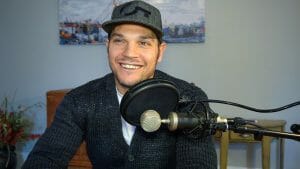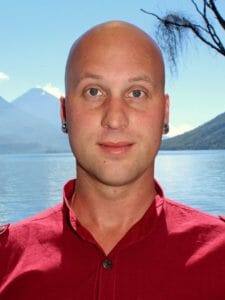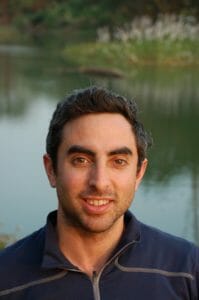
Psychedelics Today (Psychedelics Today)
Explorez tous les épisodes de Psychedelics Today
| Date | Titre | Durée | |
|---|---|---|---|
| 01 Oct 2024 | PT552 – The Globalization of Ayahuasca, Psychedelic Parenting, and the Power of Ceremony, with Glauber Assis, Ph.D. | 01:42:55 | |
In this episode, David interviews Glauber Assis, Ph.D.: research associate at the Interdisciplinary Group for Psychoactive Studies, director of the Psychedelic Parenthood community, Vital instructor, and leader of Jornadas de Kura, a plant medicine center in Brazil. He talks about growing up in Brazil in the shadows of colonialism, and how he felt his early experiences with ayahuasca and the Santo Daime church decolonized his mind, changing his relationship with himself and his family, and eventually leading him to start his own church: Céu da Divina Estrela. He believes that to truly know ourselves, we need to experience other cultures, and to truly see the commonalities between each other, we need to recognize just how different we all are. He feels that true growth is not found in the substance or experience, but in the relationships we have with others, and our ability to change. He discusses: -How ayahuasca becoming a global phenomenon is revitalizing traditions that may have otherwise been lost and more! Bonus: This episode features the first live performance in PT podcast history – a song Assis wrote in the Santo Daime tradition. | |||
| 06 Mar 2018 | Matt Kay - Floating with East Coast Float Spa | 01:37:10 | |
Matt Kay, Co-Founder of the East Coast Float Spa, joins Kyle on this episode of Psychedelics Today. This is another experiential episode where Kyle gets to float and report on his experience. Kyle and Matt also talk about the benefits of floating, the history, and how Matt got involved in the float business. We hope you enjoy this episode! Let us know what you think below in the comment section. Learn more at psychedelicstoday.com | |||
| 31 Jan 2018 | Alyssa Gursky - Ketamine and Transpersonal Art Therapies | 01:28:16 | |
Naropa graduate student, Alyssa Gursky, joins us on Psychedelics Today to talk about her experience with ketamine therapy, breathwork, transpersonal art therapy, and being a night attended for the MAPS MDMA-assisted psychotherapy studies in Boulder and Fort Collins, Colorado. Alyssa has been already played multiple roles in the psychedelic community, such as volunteering for MAPS, Psymposia, and Psychedelics Today. Her passion and energy for this work are motivating. We are really excited to see how her career in the psychedelic field unfolds as an inspiring transpersonal art and psychedelic therapist.  [youtube https://www.youtube.com/watch?v=BqsvJedwUyg] Show Notes & Links
About Alyssa Gursky Alyssa Gursky is a master’s level candidate in Transpersonal Art Therapy. She currently is subcontracted by the Multidisciplinary Association for Psychedelic Studies (MAPS) on their study using MDMA for treatment-resistant post-traumatic stress disorder (PTSD) on their Boulder and Fort Collins sites. She’s incredibly passionate about the healing potential of the creative process and the body’s innate wisdom. She loves science fiction, anything by Alejandro Jodorowsky, and petting all of the dogs. Alyssa Gursky is a master’s level candidate in Transpersonal Art Therapy. She currently is subcontracted by the Multidisciplinary Association for Psychedelic Studies (MAPS) on their study using MDMA for treatment-resistant post-traumatic stress disorder (PTSD) on their Boulder and Fort Collins sites. She’s incredibly passionate about the healing potential of the creative process and the body’s innate wisdom. She loves science fiction, anything by Alejandro Jodorowsky, and petting all of the dogs. | |||
| 04 Apr 2023 | PT403 – Melanie Pincus, Ph.D & Manesh Girn – Understanding the Brain: Psychedelic Neuroscience Demystified | 01:16:34 | |
In this episode, David interviews neuroscientist, artist, and educator, Melanie Pincus, Ph.D.; and Ph.D. candidate in Neuroscience, lead or co-author on over a dozen scientific publications, and regular contributor to PT, Manesh Girn. They tell their stories of how they became interested in neuroscience, and stress the importance of staying radically open-minded (or “epistemically naive”) when it comes to how much we can claim we understand about the brain, the mind-body connection, and consciousness itself – that while fMRI and other advances have brought us a long way, there are still a ton of “unknown unknowns,” especially around creativity, decision making, and imagination. They discuss the misconception that we only use 10% of our brains; comparisons between the brain and the universe; society’s misunderstanding of “happy hormones” (dopamine, serotonin, etc.); how chronic stress takes a toll on all parts of the body; how MDMA works with memory processing; and how stacking modalities with the psychedelic experience (like play or activities focused on emotion regulation) can really help with personal goals and growth. They have taken their understanding and fascination with neuroscience and applied it to a new course in our Psychedelic Education Center: “Psychedelic Neuroscience Demystified: How Psychedelics Alter Consciousness and Produce Therapeutic Effects“: an 8-week live course with 10 hours of prerecorded material and a built-in community. It was designed with practitioners and clinicians in mind, but with the goal of still being as accessible as possible for anyone who is curious about the neuroscience of psychedelics, and how that knowledge can help with preparation, the journey, integration, and working with a heightened window of neuroplasticity. Class begins on May 17, and if you sign up before April 12, you can get $100 off! | |||
| 09 Jun 2020 | Mark Plotkin - Bio-Cultural Conservation of the Amazon | 01:01:23 | |
In this episode, Joe speaks with Mark Plotkin, Ph.D., author of The Amazon: What Everyone Needs to Know, and President and co-founder of the Amazon Conservation Team (ACT). Plotkin talks about studying under Richard Evans Schultes (“the father of ethnobotany”), biocultural conservation (the main point of the ACT), Covid-19 and the possibilities for cures in the Amazon, how ayahuasca news can always be viewed as both good and bad, how indigenous people often know much more about their environment and plant medicines than we realize, and how not all ayahuasca is created equal. They mostly talk about the purpose of the ACT- using ethnographic mapping to help indigenous people take control of and protect their own land from their government and mining or logging interests, all while trying to bring a focus on respecting and protecting the environment, culture, and traditions encompassing the Amazon and its many people. “The race is on. Protect the forests, protect the shamans, protect the frogs, protect the plants, protect the fungi, and let’s learn what these people know before that knowledge disappears because the knowledge is disappearing much faster than the forest itself.” Resources:
Notable Quotes:On the ACT: “When we set up the Amazon Conservation team about 25 years ago, the idea was that you had groups like the World Wildlife Fund (where I had been working) that was focused on protecting rainforests, and you had groups like Cultural Survival that was focused on protecting indigenous culture, but they really didn’t talk to each other. And so we wanted to help create a discipline now known as Biocultural Conservation because those of us who work with indigenous cultures (whether it’s in the far north of Canada or it’s in the Amazon) know that there is an inextricable link between traditional shamanic cultures and their environment. And nobody was addressing that.” “There’s a great saying… that the rainforest holds answers to questions we haven’t even asked. So who knows if the answer to Covid-19 or SARs or the next virus which is coming at some point is in the Amazon, and the answer is- nobody knows, and nobody’s really looking for it. So why not protect this treasure, steward it better, look for these answers, and keep the earth a rich and wonderful place?” “The medical office of the future, if we get it right, is going to have a physician... a nutritionist... a pet therapist... a music therapist... a dietitian... a shaman... a massage therapist. Because there’s no one person and one way that’s going to embody all aspects of healing at the same time.” “We all go to the grocery [store and ask]: ‘I want to buy organic stuff.’ How come nobody ever asks where the ayahuasca comes from? Is it harvested sustainably? Was it grown organically? You know how many times I’ve been asked that question? Never. If we’re having raised consciousness, why the hell aren’t we asking these questions? “The shamans often say everything is connected, which sounds sort of trite- this “butterfly effect.” But here’s proof of that. This whole terrible pandemic is due to our lack of respect for nature.” “It’s not nice to screw mother nature either, because, you know, mother nature always wins. And thinking that we can get away with this and make a few bucks or eat a few weird dishes and not pay the ultimate price is foolish… It’s us [who are] following our nests... abusing indigenous cultures... abusing forests… and mother nature is ultimately going to have her revenge.” About Mark J. Plotkin, Ph.D.
Dr. Mark Plotkin is a renowned ethnobotanist who has studied traditional indigenous plant use with elder shamans (traditional healers) of Central and South America for much of the past 30 years. As an ethnobotanist—a scientist who studies how, and why, societies have come to use plants for different purposes—Dr. Plotkin carried out the majority of his research with the Trio Indians of southern Suriname, a small rainforest country in northeastern South America, but has also worked with elder shamans from Mexico to Brazil. Dr. Plotkin has a long history of work with other organizations to promote conservation and awareness of our natural world, having served as Research Associate in Ethnobotanical Conservation at the Botanical Museum of Harvard University; Director of Plant Conservation at the World Wildlife Fund; Vice President of Conservation International; and Research Associate at the Department of Botany of the Smithsonian Institution. Dr. Plotkin is now President and Board member of the Amazon Conservation Team (ACT), a nonprofit organization he co-founded with his fellow conservationist and wife, Liliana Madrigal in 1996, now enjoying over 20 years of successes dedicated to protecting the biological and cultural diversity of the Amazon. ACT has been a member of the United Nations Environment Programme Global 500 Roll of Honour since 2002, and was recognized as using “Best Practices Using Indigenous Knowledge” by UNESCO, the United Nation’s cultural organization. | |||
| 20 Oct 2023 | PT453 – Katrin Preller, Ph.D. & Dr. Michael Mithoefer – Neuroplasticity, Individualized Integration, and Psychedelic Medicine – Israel 2024 | 01:10:47 | |
In this episode, David interviews psychiatrist, main researcher behind the first US Phase II trial of MDMA-assisted psychotherapy, and Senior Medical Director at MAPS Public Benefit Corporation: Dr. Michael Mithoefer; and Research Group Lead at the University of Zurich, and Principal Clinical Biomarker Lead at Boehringer Ingelheim, Katrin Preller, Ph.D. Mithoefer, Preller (and David) are speakers at the upcoming Psychedelic Medicine – Israel, which will now take place July 28 - 31, 2024, in Tel Aviv. They discuss the conference and their current research: Preller's neuroimaging and work with psilocybin for alcohol use disorder, and Mithoefer (likely) being extremely close to seeing the FDA approve MDMA-assisted psychotherapy. He talks about how the therapeutic protocols for MDMA-assisted psychotherapy were created, what it's like to be so close to legalization, and how the next challenges will be accessibility and not minimizing therapy in favor of faster turnover. They discuss neuroplasticity and whether or not it actually translates into something in humans; the concept of performing brain scans before a psychedelic experience to look for trauma biomarkers (and how this could actually result in savings over time); the excitement of seeing clinical work and neuroscience progressing in parallel; why integration frameworks need to be individualized; and the importance of embracing different therapeutic approaches. | |||
| 10 Nov 2020 | PT217 - Erika Dyck - Canadian Psychedelic History | 01:12:34 | |
In this episode, Joe interviews Ph.D., Professor at the University of Saskatchewan, and author specializing in the history of psychedelics and their relation to the medical industry, Erika Dyck. Dyck talks about her interest in Canadian history and specifically Saskatchewan, which was the first jurisdiction in North America to elect a socialist government. She talks about how it was clear in the early days of governmental support that they were reaching out to people with bold ideas, leading to Humphry Osmand coming there in 1951 to commence research that he felt was being stifled in London. They talk extensively about the work of Osmand and Abram Hoffer, early experiments with giving staff in mental hospitals LSD to encourage empathy toward patients, a hospital architect taking LSD and learning that tiled, checkerboard-esque floors may be a challenge to patients with depth perception issues, a “Hollywood hospital” where wealthy film stars were flown to deal with addiction largely in secret, the concept of having patients write out an autobiography before a medicine session in order to reflect back on their life afterward, Osmond's participation in a peyote ceremony and his subsequent report, why the Timothy Leary model of dropping out of the scientific/academic world isn't helpful, why time passed and changed public opinion have led to old research coming to light, and why it's more important to talk to people who aren't sold on psychedelics yet instead of those who are already bought in and live in our psychedelic bubble. Notable Quotes“Even people like Humphry Osmond or Abram Hoffer who were on the frontlines of that psychedelic heyday in the 1950s- they were quite careful (and obviously they were sort of practiced at this), but they were quite careful about how I might characterize their work with psychedelics, and they insisted that what they were doing was not unethical, they did not have money from the C.I.A., they had lots of checks and balances, and they were clearly responding to that very heavy reputation and characterization of psychedelics. And I reflect on that every once in a while, and wonder, ‘what would they would say today?’” On Osmond and peyote: “It was the question of whether or not these chemicals and these rituals using chemicals should be allowed more broadly. And I think that the federal government in Canada was thinking that, again, this white-coated British guy would walk in and behave like the colonialist that they expected him to be, and come out and say ‘these are rotten ceremonies,’ but that was absolutely not who Humphry Osmond was. He participated fully. He chewed the buttons, he threw up, he participated in the feast afterwards, he participated in the drumming circle. ...So Osmond then made a statement (and he’s published about this in a variety of different places) saying this was an absolutely beautiful ceremony, it was absolutely sacred, it should be protected, it should be promoted, [and] people should be given access to peyote so that they continue this sacred ceremony. And the Canadian government was not impressed with this reaction.” “Our governments are addicted to the war on drugs.” “I think that part of what the psychedelic world needs to do, in my humble opinion, is to reach out and seek these kinds of bridges and these alliances, because I think that there’s a risk that we can just convince ourselves that psychedelics are good and that it won’t actually break through the psychedelic bubble, if you will, to convince regulators that in fact, there is real merit here. There’s still a sense that-- even just saying LSD- I gave a presentation last week to a group of retired physicians and these are people with medical training and who’ve spent their careers doing medical education and medical work, clinical work. And they’re like ‘oh, but LSD, that’s the one that fries your brain, right?’ I mean, these were disproven studies in the 70s, and yet it’s very interesting that that characterization is so strong.” LinksChacruna.net: Women in psychedelics Mescaline: A Global History of the First Psychedelic, by Mike Jay About Erika Dyck
Erika Dyck is a professor and Canada Research Chair in the Department of History at the University of Saskatchewan. Her work focuses on 20th century medical history, especially the history of psychedelics, psychiatry, eugenics and population control. Her books include Psychedelic Psychiatry: LSD from Clinic to Campus (2008); Facing Eugenics: Reproduction, Sterilization, and the Politics of Choice (2013); Managing Madness: Weyburn Mental Hospital and the Transformation of Psychiatric Care in Canada(2017); and she is editor of A Culture’s Catalyst: Historical Encounters with Peyote and the Native American Church in Canada (2016) and co-editor of Psychedelic Prophets: The Letters of Aldous Huxley and Humphry Osmond (2018). She is a guest editor at the Chacruna Institute for Psychedelic Plant Medicines. You can email her at Erika.dyck@usask.ca. Support the show
Navigating Psychedelics | |||
| 28 Sep 2017 | Brian Normand - Microdosing, Amazonia, Psymposia and Horizons Afterparty | 01:05:51 | |
Download What is microdosing? Is this a growing trend in the psychedelic community? What do some people in the psychedelic community think about it? Can it really help boost creativity and productivity? While the idea that microdosing can help with depression, creativity, and productivity, these claims are usually backed by self-reported experiences. There is currently no hard science/research that highlights the risks, safety, or benefits of this concept despite the growing trend and loads of anecdotal evidence. If you want to learn more about this current trend, be sure to get your ticket to the upcoming Psymposia Microdosing event. We are sure all of these questions will be laid out on the table, and it will sure be a great night and discussion! Brian Normand, Co-Founder of Psymposia, joins us again to talk about the Psymposia Microdosing event/Horizons afterparty. The event will be hosted by the one and only, Duncan Trussell. If you have plans to attend the Horizons: Perspectives on Psychedelics conference in NYC, be sure to check out the afterparty. It is always a great time and also a great place to "find the others." Save 5 dollars on your ticket with the coupon code psychedelicstoday We also cover topics revolving around drug policy and Brian's experience in the Amazon. 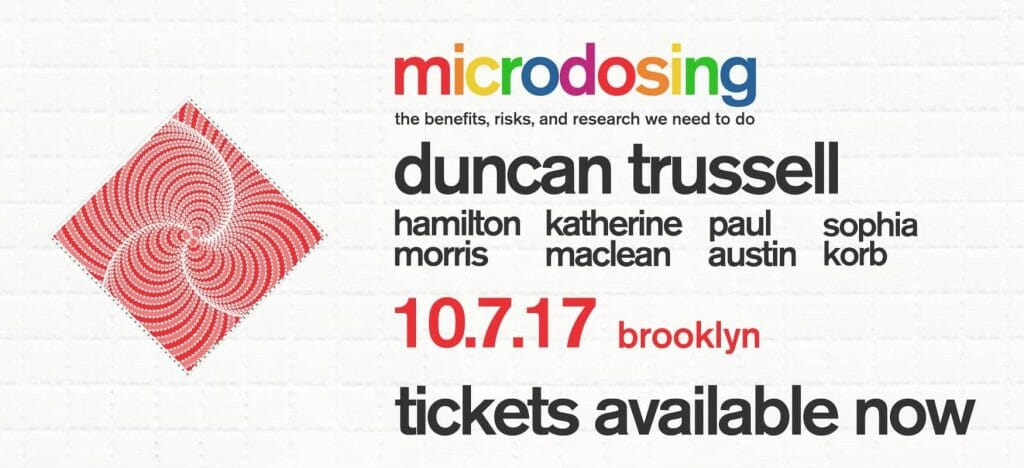 About the Microdosing EventYou’re invited to Psymposia’s 4th annual celebration following day 1 of the Horizons Perspectives on Psychedelics forum in New York City that examines the role of psychedelic drugs in science, healing, culture and spirituality. This year, Comedian Duncan Trussell joins Hamilton Morris (VICELAND’s Hamilton’s Pharmacopeia), Katherine MacLean, Sophia Korb, and Paul Austin to talk about everything you wanted to know about microdosing and more, surrounded by a live audience in Brooklyn. Co-sponsored by the Multidisciplinary Association for Psychedelic Studies // MAPS Buy tickets here: https://www.psymposia.com/events/microdosing-duncan-trussell/Remeber to use coupon code: psychedelicstoday[vimeo 233615239 w=640 h=360] Show Notes/Links
About Brian Normand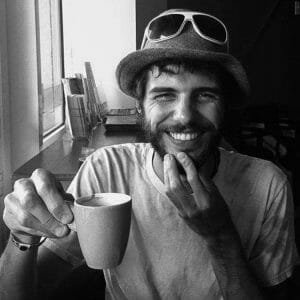 Brian Normand is CoFounder, lead designer, and webmaster of Psymposia. He’s a greenthumb, social entrepreneur & occasional trouble maker, focused on changing minds and creating spaces to teach people about plants and drugs. He graduated from the University of Massachusetts Amherst with a BS in Plant, Soil, Insect Science, & Sustainable Horticulture, Magna Cum Laude. Brian Normand is CoFounder, lead designer, and webmaster of Psymposia. He’s a greenthumb, social entrepreneur & occasional trouble maker, focused on changing minds and creating spaces to teach people about plants and drugs. He graduated from the University of Massachusetts Amherst with a BS in Plant, Soil, Insect Science, & Sustainable Horticulture, Magna Cum Laude.  | |||
| 14 Jun 2024 | PT521 – Community, Group Process, and Co-Creation: How to Build a Successful Retreat, with Alice Dommert & Kara Tremain, ACC | 01:11:26 | |
In this episode of Vital Psychedelic Conversations, Kyle interviews two Vital graduates: Alice Dommert: certified breathwork facilitator and co-founder of retreat company, The Infinite Center; and Kara Tremain, ACC: somatic practitioner and growth and development coach. A huge part of Vital is the experiential aspect of attending a retreat. Students report that being part of a group process, feeling the power of the proper set and setting, taking a journey as both a sitter and experiencer, and separating from the world and connecting with each other has been one of the best parts of the program – even life-changing. With Dommert behind 13 Vital retreats to date, she and Kyle dive into what they’ve learned in how to run a successful retreat. They discuss:
If you’re interested in Vital, applications are now open with an Early Bird discount! And if you want to attend a Vital retreat, we have a few spots left in two: a transpersonal breathwork retreat in Pennsylvania, July 9-14, and a cannabis + breathwork retreat in Agoura Hills, CA in October. Head to the Infinite Center’s website for details. | |||
| 08 Jan 2018 | Caitlin Thompson - Ayahuasca, Kambo and Psychedelic Nutrition | 01:08:06 | |
Download Caitlin Thompson, the founder of EntheoZen, joins us on Psychedelics Today to share her healing story, her interests in psychedelics, and the supplement company that she started. Caitlin is also involved in the psychedelic community - she hosts events for the Aware Project San Diego and is a Kambo practitioner. After struggling with her own depression and anxiety, Caitlin founded EntheoZen. She applied her background in neuroscience, diving deep into the scientific literature and discovered the importance of nutrition in brain and mood health. She created a scientifically-supported line of products that nourish, resource and balance the nervous system to promote a happy, healthy mind.  Caitlin uses EntheoZen as a platform to provide informative resources and tools to empower people to take their mental wellness into their own hands in a natural and sustainable way. EntheoZen provides educational media on cutting-edge wellness modalities including nutrition, herbs, meditation, psychedelics, neurofeedback training, kambo, and float tanks. Caitlin is a researcher and advocate in the psychedelic medicine movement, using EntheoZen to support research and promote awareness of psychedelic therapies as effective psychiatric interventions. EntheoZen[youtube https://www.youtube.com/watch?v=57PZK74BK00] EntheoZen is a nutritional supplement company based in San Diego, CA. It was launched in 2014 by Caitlin Thompson. At EntheoZen, our goal is to contribute to the practice of using safe and natural ways to balance brain chemistry and promote brain health and a happy mood. Blending neuroscience and holistic nutrition, we believe that the mind, body, and soul need the proper resources to stay balanced and lively. Our products are based on proven scientific principles and target specific mechanisms & issues related to mood disorders based on scientific literature. When the brain has access to the raw materials it needs to repair and function optimally, it can often heal and regulate itself. About TransZen | |||
| 13 Jul 2021 | PT253 – Sean Hinton Ph.D. – Culture, Research Limitations, and Non-Medical Paths Forward | 01:11:43 | |
In this episode, Joe interviews psychologist and adjunct professor at Capella University, Dr. Sean Hinton, about problems with current research, Timothy Leary, and how we integrate drugs into society outside the medical model. www.psychedelicstoday.com | |||
| 30 Apr 2019 | Matthew Remski - Cultic Mechanisms and After Effects of High Demand Group Life | 01:19:16 | |
Download 3 Key Points:
Support the show
Navigating PsychedelicsTrip Journal Integration Workbook
Show NotesAbout Matthew
Cults
Cult Impact
Psychotherapy Cult
Practice And All Is Coming: Abuse, Cult Dynamics, And Healing In Yoga And Beyond
Practice And All Is Coming: Abuse, Cult Dynamics, And Healing In Yoga And Beyond LinksAbout Matthew
Matthew has been practicing meditation and yoga since 1996, sitting and moving with teachers from the Tibetan Buddhist, Kripalu, Ashtanga, and Iyengar streams. Along the way he has trained as a yoga therapist and an Ayurvedic consultant, and maintained a private practice in Toronto from 2007 to 2015. From 2008 through 2012, he co-directed Yoga Festival Toronto and Yoga Community Toronto, non-profit activist organizations dedicated to promoting open dialogue and accessibility. During that same period, he studied jyotiśhāstra in a small oral-culture setting at the Vidya Institute in Toronto. Matthew currently facilitates programming for yoga trainings internationally, focusing on yoga philosophy, meditation, Ayurveda, and the social psychology of practice. In all subject areas, he encourages students to explore how yoga practice can resist the psychic and material dominance of neoliberalism, and the quickening pace of environmental destruction. | |||
| 11 Apr 2023 | PT404 – Bob Wold & Eileen Brewer – Clusterbusters: The Horrors of Cluster Headaches and the Miracle of Psilocybin | 01:26:05 | |
In this episode, Joe lets Court Wing take lead in interviewing two of the leaders behind Clusterbusters: Founder and Executive Director, Bob Wold; and President, Eileen Brewer. A long-time friend of the show, Court Wing has become our resident expert on chronic pain, writing articles about how psilocybin relieved his chronic pain, and hosting Timothy Furnish, MD & Joel Castellanos, MD in their episode about phantom limb pain. Now he speaks with Clusterbusters, a non-profit dedicated to educating people about the horrors of cluster headaches, funding ongoing research into new treatments, and normalizing the miracle that psilocybin has been to so many sufferers in alleviating their headaches. Wold and Brewer discuss their past struggles (Wold is a cluster sufferer and Brewer has migraine disease) and discovering the amazing intervention of psychedelics; the battles they've gone through in spreading this knowledge; how using psychedelics is also helping people work through PTSD; the barriers that legal psilocybin is creating; the concept of schools having a drug education program; the research looking at cluster headaches and other headache diseases; their creation of the Pain And Psychedelics Association, and more. While cluster headache sufferers have a lot to be frustrated about; as psilocybin becomes more mainstream and more and more research is funded, they now have a lot of hope. www.psychedelicstoday.com | |||
| 06 Jul 2021 | PT252 – Joel Lambert – Ibogaine, 5-MeO-DMT, and The Warrior Tradition | 01:28:51 | |
In this episode, Joe interviews former Navy SEAL turned actor and TV host, Joel Lambert. He talks about the toll 10 years as a Navy SEAL took on his brain and tells the story of what brought him back: ibogaine and 5-MeO-DMT. www.psychedelicstoday.com | |||
| 26 Apr 2022 | PT313 – Christine Calvert, LCDC – Holotropic Breathwork, Ethics, and Dying To Ourselves | 01:08:57 | |
In this episode of the podcast, Joe interviews Holotropic Breathwork® facilitator, Christine Calvert, LCDC. They discuss the many facets of the holotropic paradigm, the nuance of touch, the ethics of spaceholding, and more. www.psychedelicstoday.com | |||
| 13 Dec 2024 | PT573 – The War on Drugs: The DEA’s Attempt to Schedule DOI & DOC and the Fight for Sensible Policy, with Kat Murti | 01:09:20 | |
In this episode, Joe interviews Kat Murti: executive director of Students for Sensible Drug Policy (SSDP), the largest nationwide network of students fighting to replace the War on Drugs with policies rooted in evidence, compassion, and human rights. She talks about how she became interested in drug policy, which not surprisingly aligns with the many problems of The War on Drugs: how it’s a war on people, personal liberty, and our communities; how laws are not effective in enforcing morality; and how getting in trouble with the law often incentivizes more illegal activity. We all know that our current system doesn’t work and that the drug war no longer appeals to most reasonable people, but how can we move towards sensible policy? She discusses previous successes (both at SSDP and before), and some of their current projects, from the work they’re doing with fentanyl strip training and distribution, to education work at festivals and their program, “Just Say Know.” She talks about:
and much more. The SSDP’s biggest battle now is fighting the DEA’s attempted scheduling of DOI and DOC, two compounds that have been used in research for decades and pose no real threat to safety – which would drastically derail a ton of research. They just completed a 10-day hearing with the DEA. Watch Joe and Hamilton Morris’ breakdown here, and stay tuned to SSDP and PT for updates. | |||
| 02 Aug 2024 | PT535 – Jungian Psychology, Psychedelics, and the Multiplicity of Self, with Maria Papaspyrou & Dr. Ido Cohen | 01:21:54 | |
Jungian psychology takes a fascinating look at the relationship between the conscious and unconscious parts of our minds. How is this framework brought more to the forefront through psychedelics and an understanding of our many parts? In this episode of Vital Psychedelic Conversations, Johanna interviews Jung experts and Vital instructors: Maria Papaspyrou, psychotherapist and co-founder and director of the Institute of Psychedelic Therapy (IPT); and Dr. Ido Cohen, clinical psychologist and founder of The Integration Circle. They talk about the experiences that helped them first understand the concept of multiple different parts making up their being, and dive into what it is about psychedelics that allows us to discover and work with these different parts: how the protector parts of our psyche work overtime to keep parts away from us, and how psychedelics can dissolve them, leading to a better understanding of ourselves. How much of our persona is based on who we feel we’re supposed to be? What shadow parts are stopping us from being our true selves? And what amazing parts of ourselves have yet to be discovered? They discuss:
and more! If you really want to dig into Jungian ideas, Jungian psychology is one of the new specialization tracks featured in the next cohort of Vital, beginning September 16. If you want to know more, send us an email or attend one of the next Vital Q+As. | |||
| 07 Jan 2022 | PT282 – Rabbi Zac Kamenetz & The Rev. Hunt Priest – Judaism, Christianity, and Embracing Psychedelics | 01:40:10 | |
In this episode of the podcast, Joe revisits the topic of religion and psychedelics with a Priest and Rabbi both very interested in using religion to frame the mystical: Rabbi Zac Kamenetz and Episcopal priest, Hunt Priest. www.psychedelicstoday.com | |||
| 18 Aug 2023 | PT433 – Senator Alejandra Lagunes – From Personal Healing to Public Policy: The Path to Psychedelic Decriminalization in Mexico | 00:53:39 | |
In this episode, recorded in-person at Psychedelic Science 2023, Kyle interviews Senator for the Mexican Green Party, Alejandra Lagunes. Lagunes is the first Senator in Mexico to promote the use of psychedelics, and has been organizing open parliaments to foster collaboration between researchers, scientists, politicians, and Indigenous people, culminating in a groundbreaking decriminalization initiative to decriminalize psilocybin and psilocin from list 1 to list 3 (meaning they could be prescribed), create a new chapter for entheogens (and move mushrooms there), build an economically beneficial framework for Indigenous people, protect ancestor knowledge by law, and make big bioconservation moves with changes to environmental laws. She discusses her personal journey with depression, anxiety, and a life-saving ayahuasca journey; how Covid uncovered a crisis in meaning and an openness to talk about mental health; the need for accessibility and safety in psychedelics against challenges in politics and policy implementation; our mental health crisis and the need for innovation, education, and overcoming stigma; the influence of US drug control policies on international regulations; the power of storytelling; and why we need to go back to our origins. | |||
| 21 Jul 2023 | PT425 – Dr. Gabrielle Lehigh – The Transformative Potential of Psychedelics, Community, and Live Music | 01:30:05 | |
In this episode, David interviews Dr. Gabrielle Lehigh: Co-Founder and Managing Director of Psychedelic Grad, a web-based community serving as an educational and career hub for up-and-coming psychedelic professionals; and the host of the related podcast, “Curious to Serious,” where she speaks with students and professionals about the path they took to land in the psychedelic field. Lehigh recently earned her Ph.D. with research on something not many are looking at: the stories behind powerful and transformative psychedelic experiences specifically at music events, based on 38 interviews and over 500 surveys mostly collected at day-long festivals in the southern United States. While the goal was largely data collection in support of the clear potential for therapeutic benefit in using psychedelics in recreational settings (as many of us who have experienced this can attest), she was surprised to learn how many people still blindly trust dealers; how much festival security can affect safety; how the community often makes more of a difference than the music itself; and how many parallels exist between colder clinical models of psychedelic-assisted therapy and the completely open festival experience. She discusses how she found her way from environmental justice to psychedelics; what people are most looking for on Psychedelic Grad; why she chose to use the word “transformative” in her research; what music she has had her best experiences with; why psychonauts shouldn’t forget about Pink Floyd; and much more. | |||
| 16 Jul 2021 | PTSF68 – Neuroplasticity, Michael Pollan, and DMT, with Manesh Girn | 01:19:50 | |
In this week's Solidarity Fridays episode, Joe, Michelle, Kyle, and David are joined by Ph.D. candidate in Neuroscience, Manesh Girn, to talk about neuroplasticity, Michael Pollan's recent op-ed, Senate Bill 519, DMT, and more!
www.psychedelicstoday.com | |||
| 23 Jun 2023 | PT418 – Psychedelic Morning Show #2 with Joe Moore and Anne Philippi | 01:07:30 | |
In the second episode of our special, two-part series, the Psychedelic Morning Show, Joe Moore and Anne Philippi are live once again bright and early from Psychedelic Science 2023 in Denver. Listen to this podcast as they interview four guests working on the front lines of psychedelic research, law, and the treatment of chronic pain. Guests for this episode include:
| |||
| 19 Jun 2020 | Solidarity Fridays - Week 12 | 01:09:45 | |
In today's Solidarity Fridays episode, Joe and Kyle sit down and talk about topics in the news including what psychedelic companies owe to the community (both indigenous people and the underground psychedelic world), psilocybin-like drug alternatives for treating depression and the many reasons newer companies are trying to remove the psychedelic part of the medicine, and Dennis McKenna’s recent appointing to New Wave Holdings’ psychedelic research advisory board and what that says about the current climate of corporations moving into this space. They discuss the dangers of “sponsored content”-like corporate messages, the malleability of laws and power of lobbyists and interest groups, and how manipulation is faster and quieter than ever before, while many big decisions are being made by people crippled from decades of unseen cultural baggage. And why are companies trying to remove the psychedelic side of medicine? Is it solely for profit, or could it be because there are so many in need that streamlining the process or using these medicines differently than we’re used to in this space would be beneficial to the most people? Lastly, they talk about the importance of making the right connections and having the right arguments and really asking yourself what you’re trying to do when engaging with those who disagree with you- are you just trying to be right, or are you trying to make a change? Additionally, Joe shares an important harm reduction story and tip, and gives the news that Psychedelics Today recently surpassed 1 million downloads. Thank you for the support! Quotes“Is the only box you can fit in, like ‘I want a career, a home and a family’? And everything else doesn’t matter? Is that it? I think it’s more complicated than that. We’re not just atomic units, like nuclear families. We’re far more interconnected than that, and it’s kind of irresponsible to ignore that.” -Joe “Big businesses end up creating these systems that we all seem to rely on over time and to some extent, I think we appreciate the convenience. If that crumbled, what would our life look like? Could we tolerate living more locally, doing things on a much smaller scale? ...What would that look like in a world where the government didn’t give huge bailouts to these big companies? Our world would drastically change, and could we shift?” -Kyle “Maybe a thing to just keep in the back of our minds when we’re hearing all this stuff about new pharma companies is that pharma is not guaranteed money for these people. Pharma is still a gamble. Unless they really nail it, they could go bankrupt in a couple years, or just have earnings way lower than they hoped for. So it’s big money, it’s big bets, and they’re betting on big returns, so they kind of have to go out on a limb and stay stuff like this. But the fact that Forbes put that out- that psilocybin could be toxic- seems irresponsible to me… To me, this kind of looks like sponsored content. Or it’s just like, ‘how do we get these corporations to talk to us and be comfortable, so we have to promise fluff.’ Or, is this organized propaganda?” -Joe “Some of the people in this space are just getting so nasty that a lot of people are just saying, ‘nah, I’m out, later. I’ll go watch Seinfeld reruns for the next couple years while this shit plays out.’ Are you moving allies away, or are you bringing allies closer to you? Think about that. You want more allies. What’s the best tool? Sweetness. Anger, bitterness, spite- those are things that make people want to go away from you. How effective do you want to be, why do you want to be effective, and what tools are you willing to employ to be effective?” -Joe LinksWhat Do Psychedelic Medicine Companies Owe to the Community? 2nd Gen Psychedelic Drugs For Depression Can Be Safer For Older Adults New Wave Holdings Corp Appoints Dr. Dennis McKenna to Psychedelic Research Advisory Board Support the show
Navigating Psychedelics | |||
| 14 Aug 2020 | Solidarity Fridays - Week 20 | 00:57:55 | |
In today's Solidarity Fridays episode, Joe and Kyle talk about recent items in the news and dive deep into Stan Grof's work, different types of therapy, and the way touch comes into play in the therapeutic world. They first discuss Wisconsin-based non-profit medical research institution, The Usona Institute, and their recently published new method for synthesizing psilocybin, and how great this is for the community. There is a danger to locking away ideas, and new methods of synthesis could lead to monopolization of the market, but publishing their findings means this can be available to all. They then talk about re-reading Grof and the concept of the body's inner radar bringing forth what the inner healer needs to work on, and the idea that hyperventilation could be the body trying to heal itself. This leads to discussion of Kyle's time at a Soteria-inspired house in Burlington and their method of simply sitting with people and being there through difficult times. They then discuss different types of therapy, from how traditional talk therapy seems to be more of an art form rather than a measurable methodology, to Grof's Fusion Therapy (which is a type of therapy involving touch that may be over the line by today's standards), to new sex therapies that are starting to make headway. The main threads through this discussion are touch: when can touch be used safely, the dangers of touch being perceived as sexual, and the importance of communication and boundary-setting before sessions, and distraction vs. work: when is a participant wanting to talk about things during a session part of the work and important to respect, and when is it simply a distraction and a way to avoid the work? Lastly, they remind us that seats are still on sale for the 2 new rounds of (now CE-approved) Navigating Psychedelics (beginning on September 17th), "Psychedelics and the Shadow: The Shadow Side of Psychedelia" is on sale, and there is a new class developed with Johanna Hilla-Maria Sopanen called "Imagination as Revelation," focusing on Jungian psychology and how it can be applied to understanding psychedelic experience. Notable quotes “A corporation finding a new synthesis and being able to patent that and then kind of locking it away and saying ‘It stays within our corporation and we’re the only ones that can produce this in this way’ doesn’t mean that other people can’t find other ways.” -Kyle “In holotropic breathwork, Stan [Grof] talks about how if someone doesn’t land by the end of the workshop and get somewhat settled and resolved, a traditional psychiatrist might say ‘ok yes, this is a psychotic break.' And what do we do? You do your normal interventions. So, optimal for the breathwork and psychedelic world would be to have a place where folks could go and be for days to months to settle and kind of reorganize. That’s the model of spiritual emergence, I think, that Stan talks about. You have to have really careful discussions and criteria for: psychotic break? Or possible spiritual emergence? Or, what’s the real difference?” -Joe “I definitely saw some magic, by just being with people, not trying to really change their experience.” -Kyle “I think delaying is really undervalued. You want to do just the right thing at just the right time. Well, what if you do the wrong thing? Why not wait, so you don’t do the wrong thing?” -Joe LinksUsona Institute Publishes Breakthrough Development in Scalable Psilocybin Synthesis Psychedelics Today: "Spiritual Emergence or Psychosis" Webinar Support the show
Navigating Psychedelics | |||
| 26 Dec 2023 | PT472 – Mike Finoia – Psychedelics and Comedy: Finding the Humor in Personal Growth | 01:00:00 | |
In this episode, Joe interviews Mike Finoia: standup comedian, Producer for the hit show, “Impractical Jokers,” and co-host of the Comes a Time Podcast with Dead & Company bassist, Oteil Burbridge. His new Special, “Don’t Let Me Down,” is out now. He talks about his early days of recreational drug use at jam band shows; a powerful psilocybin experience; passing out before his first ketamine experience and how his commitment has made subsequent experiences much smoother; and how his continued work has allowed him to focus on what’s truly important. He’s seen positive results from talking about his ketamine-assisted psychotherapy experiences on stage, and he’s working on new material that will be much more focused on not just psychedelics, but the therapy, self-work, and growth he’s gone through in his journey. He also discusses the influence of other comedians; the bioavailability in different ketamine methods; how psychedelics are like a performance-enhancing drug; the importance of having a working, attainable idea of success and not getting caught up in other people’s lives; the benefit of asking people in the audience to raise their hands if they’ve done psychedelics; and the importance of recognizing that psychedelics are absolutely not for everyone – at least if they’re not ready. | |||
| 01 Aug 2023 | PT428 – Rick Doblin, Ph.D. – The Promise of MAPS' Phase III Data, Psychedelics and Adolescents, and the Need for Honest Drug Education | 00:44:07 | |
In this episode, recorded on the eve of MAPS’ Psychedelic Science 2023, Kyle interviews MAPS’ Founder and President, Rick Doblin, Ph.D. He begins with an overview of the fast-approaching (and largest ever) psychedelics conference, emphasizing its significant growth, many features, and bipartisan opening ceremony, then discusses MAPS’ soon-to-be-released confirmatory Phase III data on MDMA-assisted therapy for PTSD, which should set the stage for legal MDMA and the increasing need for trained psychedelic therapists. As the FDA is requiring studies on adolescents, he discusses this sensitive issue and questions why it’s so controversial, since teenage years are often closer to both trauma and a more malleable brain, Indigenous traditions certainly didn’t have age limits, and honest drug education – something that is absolutely necessary to fight the backlash against this quickly growing field – teaches us that it’s not the substance; it’s our relationship to it. Could not having these rites of passage be hurting us? He also discusses the natural vs. synthetic conflict; breathwork; whether or not cannabis is truly damaging to young minds; Federal rescheduling vs. state rescheduling; why it’s controversial to give therapists MDMA in training; Gul Dolen’s work with reopening critical periods; psychedelics in couples therapy; and much more. | |||
| 14 Sep 2021 | PT262 – Carlene MacMillan, M.D. – Set, Setting, and Systems: Adding Insurance to the Conversation | 01:04:21 | |
In this episode, Kyle interviews psychiatrist, co-founder/CEO of Brooklyn Minds, and co-host of the Clubhouse show, New Frontiers: Carlene MacMillan, M.D. They discuss Spravato, insurance, and the importance of infrastructure. www.psychedelicstoday.com | |||
| 21 Jan 2025 | PT582 – Is the DEA Sabotaging Psychedelic Research? Inside the Push to Schedule DOI and DOC, with Hamilton Morris | 00:57:32 | |
In this episode, Joe interviews renowned chemist, filmmaker, and journalist, Hamilton Morris. After originally backing down from its first attempt in 2022, the DEA is once again looking to apply schedule I status to two lesser-known compounds: DOI (2,5-dimethoxy-4-iodoamphetamine) and DOC (2,5-dimethoxy-4-chloroamphetamine). For decades, DOI and DOC have been incredible tools for researchers studying serotonin receptors, showing promise for chronic pain, anxiety, depression, and more. Originally recorded as a livestream in November, we felt this discussion deserved more attention, as Morris was present during the hearing and saw first-hand the damage that can come from the combination of immense overreach and outdated beliefs. He talks about:
While we wait for the conclusion of the hearing, head to Hamilton’s Patreon to hear his daily breakdowns. | |||
| 08 Oct 2021 | PTSF80 – Decriminalization in Seattle, San Pedro, and The Dark Web | 01:03:18 | |
In this week's Solidarity Fridays episode, Joe and Kyle discuss recent decriminalization news in Seattle and Santa Cruz, the debates on how to handle mescaline-containing cacti, Hamilton Morris, prohibition, and the Dark Web. | |||
| 13 Feb 2024 | PT486 – Steve Rio – 5-MeO-DMT, Somatic Release, and Creating Context for Spirituality | 01:07:03 | |
In this episode, Joe interviews Steve Rio: psychedelic guide, performance and transformation coach, musician, and co-founder of Enfold, a retreat center in BC, Canada. While Enfold caters each experience to each client, they largely work with 5-MeO-DMT (which is unregulated in Canada); partly because of its power, and partly because Rio realized how much was missing in terms of safety and process when using the substance. They are trying to fill in the gaps, working with the University Health Network Centre for Mental Health to analyze measurements of mindfulness, DAS tests, the Brief Inventory of Thriving survey, and language used when describing experiences to collect as much qualitative data as possible. He discusses their screening process, why they work with synthetic 5-MeO-DMT, why they encourage everyone to go to a group session, and how 5-MeO seems to bypass psychological processes and largely be related to somatic release. He talks about:
and more! | |||
| 17 Aug 2021 | PT258 – Manesh Girn – Psychedelics and the Brain: Neuroplasticity and Creativity | 01:07:34 | |
In this episode, Kyle and Michelle interview Manesh Girn: Ph.D. candidate in Neuroscience. They discuss neuroplasticity and how psychedelics affect the neurocognitive processes behind thought, flexibility, and creativity. www.psychedelicstoday.com | |||
| 14 May 2021 | PTSF59 – Psychedelics and Bipolar, with Benjamin Mudge | 01:31:07 | |
In today’s Solidarity Fridays episode, Michelle, Kyle, and Joe are joined by Benjamin Mudge. Mudge is bipolar and has used ayahuasca to keep himself off pharmaceutical drugs, and he thinks others can safely follow his lead. | |||
| 08 Jul 2022 | PT335 – Christopher Dawson & Andrew Galloway – Modernizing Traditional Plant Medicine With Neuroscience and Luxury | 01:09:10 | |
In this episode, Joe interviews Christopher Dawson & Andrew Galloway: Co-Founders and CEO/COO, respectively, of Dimensions; a company creating retreats blending traditional plant ceremony with modern science and 5-star luxury. www.psychedelicstoday.com | |||
| 02 Feb 2024 | PT483 – Dr. Kate Pate – Traumatic Brain Injuries, the Gut Microbiome, and the Potential of Psychedelics as Anti-Inflammatory Agents | 00:56:13 | |
In this episode, Joe interviews Dr. Kate Pate: Ph.D. neurophysiologist; Founder and CEO of Coruna Medical; founding board member of the Psychedelic Medicine Association; and Founder of The Way Back, a company that will provide education and coaching services related to military, veteran, and first responder health – often in wilderness settings. She talks about her introduction to psychedelics through the Heroic Hearts Project, where she later served as an integration coach and director of research, looking at psilocybin for traumatic brain injury symptoms, and how the gut microbiome changes after ingesting ayahuasca. She points out that gut health hasn’t been a focus of research, but it’s now emerging as a key indicator of physical and mental health. So, how do psychedelics, particularly plant-based ones, come into play? Are the long term shifts after an experience related to a change in the bacteria inside of us? She breaks down what a microbiome is and how it changes based on diet; how inflammation is created and the inflammatory cascade that happens after a head injury; how toxins create a stress response similar to an allergic reaction; the frustrations of vets and the limited resources of the VA; the commonality of substance and alcohol use disorders in people coming home from service; the many nonprofits she’s worked with; and how important it is to increase science funding from the government. | |||
| 17 Oct 2023 | PT452 – Gül Dölen, MD, Ph.D. – Metaplasticity, Reopening Critical Periods, and Octopuses on MDMA | 01:27:46 | |
In this episode, Melanie Pincus, Ph.D. and Manesh Girn, Ph.D. once again take over hosting duties, this time interviewing Gül Dölen, MD, Ph.D.: Associate professor of Neuroscience and Neurology at the Johns Hopkins University, School of Medicine, and head of the Dölen lab. Dölen largely researches the neuroscience behind social behaviors and is most known for her work in establishing how psychedelics reopen critical periods of learning, and that the true benefit of psychedelics could be in learning how best to reopen those critical periods, how long they’re open for, and which therapeutic frameworks and integration practices could best take advantage of them. Her most recent research was giving MDMA to otherwise very asocial (and violent) octopuses to prove that a drastically different species would exhibit typical MDMA-inspired prosocial behavior. And, after discovering that all the classic psychedelics worked to reopen critical periods – that psychedelics are apparently the master key to opening these periods – she’s now researching why, through the PHATHOM project (Psychedelic Healing: Adjunct Therapy Harnessing Opened Malleability). You will likely learn a ton in this episode: why critical periods close as we get older and what may impede them from opening more often; how plasticity and metaplasticity relate to each other and why increased neuroplasticity isn’t always a good thing; how the length of different psychedelic experiences relates to efficacy; why the different results of MAPS’ and Compass Pathways’ studies show the importance of therapy; how autism could be related to critical periods; why repeated psychedelic use may make it harder for one’s brain to reset; and how important context is in the ability to reopen critical periods – especially around social learning. | |||
| 02 Feb 2021 | PT229 - Dr. Matthew Johnson - What is Consciousness? | 01:12:11 | |
In this episode, Kyle and Joe interview researcher and professor at Johns Hopkins, Dr. Matthew Johnson. They talk about the definition of consciousness and the use of religious/spiritual frameworks in psychedelic sessions. | |||
| 03 Apr 2020 | Kyle and Joe - Solidarity Fridays - Week One | 01:06:58 | |
In today’s Solidarity Friday’s episode with Kyle and Joe, they cover current events on COVID-19, social media narratives, a new world, psycho-pharma, psychedelic VICE articles, movies about acid and more. Support the show
Navigating PsychedelicsShow NotesCoronavirus
Narratives
Processing All of This
A New World
Psycho-Pharma
Vice
Shadow Panel
Final Thoughts
| |||
| 07 May 2021 | PTSF58 - Liberty, The Power of Therapy, and Mushrooms in Maine | 01:16:43 | |
In today’s Solidarity Fridays episode, Michelle, Kyle, and Joe discuss Maine’s proposal for legal psilocybin therapy, MAPS’ Phase 3 MDMA trial, therapy, money, and a recent "100 Most Influential People in Psychedelics" list. | |||
| 08 Aug 2023 | PT430 – Maya Albert – Psychedelics for Eating Disorders, Davos' House of Psychedelics, and The Future of the Synthesis Institute | 01:04:52 | |
In this episode, Joe interviews Maya Albert: Co-Founder of the Psyched conference, and Director of Operations at Tabula Rasa Ventures and the Synthesis Institute. She shares her journey of how she became involved in the psychedelic space through her mother, and her personal experience as a patient in a clinical trial on psilocybin for the treatment of anorexia – a much more common and deadly affliction than most people realize. She discusses her involvement with the various psychedelic gatherings surrounding Davos and the World Economic Forum, as well as the work she’s doing with Tabula Rasa and some of their clients seeking to expand insurance coverage to psychedelic-assisted therapy. She discusses the Synthesis Institute’s recent struggles that shook up the psychedelic space, what they’re doing to save the company, how Retreat Guru has helped them, and the implications for the wider psychedelic movement. And she talks about much more: the legality and vetting process for training in Oregon and Colorado; truffles in the Netherlands vs. classic psilocybin; the idea of alcohol as poison and ‘Cali sober,’ and how can we all be more collaborative and not sling mud at each other? | |||
| 05 Mar 2021 | PTSF49 - MDMA For Alcoholism, The Placebo Effect, and Ceremonial Magicians | 01:27:41 | |
In today’s Solidarity Fridays episode, Kyle, Joe, and Michelle discuss using MDMA for alcoholism, a microdosing study proving the placebo effect, ways to make therapy cheaper, and if a Shaman is really necessary for ceremonies. | |||
| 06 Dec 2022 | PT376 – Sherry Rais – Ketamine and Psychedelic-Assisted Therapy as Employee Benefits | 01:13:03 | |
In this episode, David interviews Sherry Rais: CEO/Co-Founder of Enthea, a benefit plan administrator offering psychedelic-assisted therapy as a benefit to interested employers. www.psychedelicstoday.com | |||
| 20 May 2022 | PT320 – Anne Philippi – The New Health Club, Intergenerational Trauma, and Psychedelics in the Workplace | 01:20:22 | |
In this episode of the podcast, David interviews former journalist and Founder/CEO of The New Health Club, Anne Philippi. She discusses non-linear healing, intergenerational trauma, and how psychedelics can heal the workforce. | |||
| 28 Dec 2016 | Natalie Ginsberg - Psychedelic Policy and Advocacy | 00:44:28 | |
Download Natalie Ginsberg - MAPS Policy and Advocacy Manager In this discussion, Natalie shares her insights surrounding U.S. and international policy around drugs. We talk about | |||
| 21 Jul 2017 | Daniel Pinchbeck - How Soon is Now? | 01:05:11 | |
Daniel Pinchbeck, author of the new book, How Soon is Now? joins us this week to talk about the global ecological crisis, climate change, and how psychedelics may play a role in transforming human culture. If you do believe that we are in a time of great ecological crisis, what are you doing about it? Taking action is the most important step to creating change, but are we willing to take the sacrifices and action to create change? Daniel shares his insights about how to take action to implement change. While some of these changes may be challenging, i.e., stop traveling as much, it may be necessary to help cut carbon emissions and to slow down the global warming cycle. Or is it too late to even take action? A recent journal article, "Lifetime experience with (classic) psychedelics predicts pro-environmental behavior through an increase in nature relatedness" states: Our model controlled for experiences with other classes of psychoactive substances (cannabis, dissociatives, empathogens, popular legal drugs) as well as common personality traits that usually predict drug consumption and/or nature relatedness (openness to experience, conscientiousness, conservatism). Although correlational in nature, results suggest that lifetime experience with psychedelics in particular may indeed contribute to people’s pro-environmental behavior by changing their self-construal in terms of an incorporation of the natural world, regardless of core personality traits or general propensity to consume mind-altering substances. Thereby, the present research adds to the contemporary literature on the beneficial effects of psychedelic substance use on mental wellbeing, hinting at a novel area for future research investigating their potentially positive effects on a societal level. About How Soon is Now? Description of his book from Amazon.com Description of his book from Amazon.com We are on the brink of an ecological mega-crisis, threatening the future of life on earth, and our actions over the next few years may well determine the destiny of our descendants. Between a manifesto and a tactical plan of action, How Soon is Now? by radical futurist and philosopher Daniel Pinchbeck, outlines a vision for a mass social movement that will address this crisis. Drawing on extensive research, Daniel Pinchbeck presents a compelling argument for the need for change on a global basis. The central thesis is that humanity has unconsciously self-willed ecological catastrophe to bring about a transcendence of our current condition. We are facing an initiatory ordeal on a planetary scale. We can understand that this initiation is necessary for us to evolve from one state of being – our current level of consciousness – to the next. Overcoming outmoded ideologies, we will realize ourselves as one unified being, a planetary super-organism in a symbiotic relationship with the Earth's ecology and the entire web of life. Covering everything from energy and agriculture, to culture, politics, media and ideology, How Soon Is Now? is ultimately about the nature of the human soul and the future of our current world. Pinchbeck calls for an intentional redesign of our current systems, transforming unjust and elitist structures into participatory, democratic, and inclusive ones. His viewpoint integrates indigenous design principles and Eastern metaphysics with social ecology and radical political thought in a new synthesis.
| |||
| 11 Oct 2024 | PT555 – Protecting Indigenous Wisdom: Rethinking Psychedelic Legalization, with Gabriela Galindo | 01:16:16 | |
In this episode, Kyle interviews Gabriela Galindo: program coordinator of FLOWS (Foundations for Leaders Organizing for Water and Sustainability), an organization working towards social and environmental justice, ecosystem restoration, community building, and the preservation and protection of Indigenous medicines. She discusses her entry point to psychedelics and how she got involved with Colorado’s Natural Medicine Health Act (Prop 122) when she saw a complete absence of Indigenous representation in the legislature. The narrative that we all have a right to healing and that these medicines belong to everyone is pretty common today, but Galindo argues that this is not fair: that each plant has its own history, and that each is protected by its own culture. Shouldn’t the communities that have stewarded these medicines for centuries have a say in whether their medicine is going to be shared and legislated at the state level? Shouldn’t they have the ability to consent to these new proposals? She talks about:
and more! | |||
| 16 Mar 2021 | PT235 - The Entheo Society of Washington - Dismantling Power Systems Through Decriminalization | 01:13:51 | |
In this episode, Joe interviews Leo Russell, Monique Bridges, Malika Lamont, Tatiana, and Solana Booth of the Entheo Society of Washington, a 501c3 organization and sister agency to Decriminalize Nature Seattle. | |||
| 04 Jun 2021 | PTSF62 - Senate Bill 519, Ketamine, and Psilocybin-producing Cicadas | 01:15:36 | |
In today’s Solidarity Fridays episode, Joe, Michelle, and Kyle discuss California’s SB519 passing the senate, the government opening up cannabis access for researchers, and zombified, sex-crazed cicadas that produce psilocybin. | |||
| 18 Feb 2025 | PT 586 - Louis Dorian - Psychedelist | 01:09:15 | |
In this episode of Psychedelics Today, Joe Moore sits down with Louis Dorian, the visionary behind Psychedelist, a groundbreaking global platform designed to support the emerging psychedelic movement. Described as a “cyber city” for all things psychedelic, Psychedelist connects individuals with treatment providers, educators, facilitators, legal experts, and even vetted product vendors in an effort to enhance accessibility and safety in this evolving space. Louis shares his journey into psychedelics, from early rave days to a transformative encounter with high-dose LSD and psilocybin that shaped his worldview. He opens up about the struggles of navigating trauma, loss, and the shortcomings of Western psychiatric care, leading him to develop his own trauma-processing techniques blending meditation, breathwork, and psychedelics. The conversation also dives deep into the broader implications of drug prohibition, harm reduction, and the role of skill-building in responsible psychedelic use. Whether you're a seeker, a skeptic, or a professional in the field, this episode offers a compelling exploration of the psychedelic landscape and the power of intentional community building. Resources:
Tune in for an eye-opening discussion on the future of psychedelics, regulation, and self-exploration! | |||
| 26 Jun 2018 | Alyssa Gursky - Transpersonal Art and Ketamine Therapies | 01:18:19 | |
In this episode of Psychedelics Today, host Kyle Buller interviews Alyssa Gursky, a Masters student at Naropa University with a focus in mental health counseling and transpersonal art therapy. Their discussion dives into the intersection between art therapy, transpersonal art, and psychedelics. Ketamine, symbols, and meaning are also areas of this interview. 3 Key Points:
More at: www.psychedelicstoday.com Navigating Psychedelics: psychedelicstoday.teachable.com/p/navigatingpsychedelics | |||
| 11 Jun 2019 | Ido Cohen - Re-Turn to Wholeness: Jung and Integration | 01:23:23 | |
In this episode, Kyle interviews Dr. Ido Cohen, co-founder of The Integration Circle. In the show they talk about themes that arise from transformative experiences and the different ways to integrate them through attitude change, environment and community. 3 Key Points:
Support the show
Navigating PsychedelicsTrip Journal Integration Workbook Show NotesAbout Ido
Integration
Ego and Self
Transformative Experiences
Environment
Spiritual Bypass
Final Thoughts
LinksAbout Ido Cohen
Ido offers depth oriented psychotherapy to the bay area out of San Francisco. Ido conducted his doctoral dissertation study for 6 years, researching the integration process of Ayahuasca ceremonies in western individuals, using a Jungian psychology lens. Ido is committed and passionate about supporting individuals engaging in psychedelic, entheogenic and other consciousness expanding practices, as they integrate their experiences to create long lasting and sustainable change. In addition to his psychotherapy practice, he offers individual and group preparation and integration services. | |||
| 26 Jul 2022 | PT341 – Monnica Williams, Ph.D. – Racism, Trauma, Research, and Psychedelics | 01:01:02 | |
In this episode, David interviews Monnica Williams, Ph.D. She discusses the mental health impact communities of color face as a result of racism; and what therapists, clinicians, and researchers can do to improve this paradigm. | |||
| 28 Jan 2022 | PT288 – Annie & Michael Mithoefer – Vital Psychedelic Conversations | 01:17:59 | |
In this episode of the podcast, Kyle interviews Annie & Michael Mithoefer for the 2nd edition of Vital Psychedelic Conversations. They cover breathwork, trusting the process, the inner healer, and updates on new trials for 2022. www.psychedelicstoday.com | |||
| 15 May 2016 | Elizabeth Gibson - Dreamshadow Holotropic Breathwork | 01:28:09 | |
Download
Kyle and Joe get to talk with Elizabeth regarding her experience with MDMA assisted psychotherapy, Holotropic Breathwork, and her work with Stan and Christina Grof in the Grof Transpersonal Training program. Elizabeth also discusses the importance of bodywork such as working with people who "aren't back" from their experience, doing breathwork/bodywork with other experienced facilitators, observation of bodywork, and the lack of bodywork in psychedelic psychotherapy. Elizabeth will be facilitating some Dream Work at her next Holotropic Breathwork workshop.
Mentions
Petra and Ken Sloan | Sandra Phocas | Jack Kornfield
Insight and Opening Retreats (for historical reference)
Michael Mithoefer & Annie Mithoefer (2013) - YouTube | |||
| 10 Apr 2020 | Kyle and Joe – Solidarity Fridays – Week Two | 01:13:49 | |
In today’s Solidarity Friday’s episode with Kyle and Joe, they cover current events on psychedelics for treatment of COVID-19 trauma, an article on single dose psilocybin effects, psychedelic investments, self care and more. Support the show
Navigating PsychedelicsShow NotesA Single High Dose of Psilocybin Alters Brain Function Up to One Month Later
Doctor Calls for "Temporary Approval" of Psychedelics to Treat COVID-19 Trauma
Psychedelic Investments
Self Care
Psychedelics and the Shadow: A Series Exploring the Shadow Side of PsychedeliaEnroll Today!About KyleKyle’s interest in exploring non-ordinary states of consciousness began when he was 16-years-old when he suffered a traumatic snowboarding accident. Waking up after having a near-death experience changed Kyle’s life. Since then, Kyle has earned his B.A. in Transpersonal Psychology, where he studied the healing potential of non-ordinary states of consciousness by exploring shamanism, plant medicine, Holotropic Breathwork, and the roots/benefits of psychedelic psychotherapy. Kyle has co-taught two college-level courses. One of the courses Kyle created as a capstone project, “Stanislav Grof’s Psychology of Extraordinary Experiences,” and the other one which he co-created, “The History of Psychedelics.” Kyle completed his M.S. in clinical mental health counseling with an emphasis in somatic psychology. Kyle’s clinical background in mental health consists of working with at-risk teenagers in crisis and with individuals experiencing an early-episode of psychosis. Kyle also facilitates Transpersonal Breathwork workshops. About JoeJoe studied philosophy in New Hampshire, where he earned his B.A.. After stumbling upon the work of Stanislav Grof during his undergraduate years, Joe began participating in Holotropic Breathwork workshops in Vermont in 2003. Joe helped facilitate Holotropic and Transpersonal Breathwork workshops while he spent his time in New England. He is now working in the software industry as well as hosting a few podcasts. Joe now coordinates Dreamshadow Transpersonal Breathwork workshops, in Breckenridge, Colorado.
| |||
| 04 Aug 2023 | PT429 – Tony Shields – From Mycophobia to Fungi Fever: The Psychedelic Space's Growing Interest in Functional Mushrooms | 01:05:16 | |
In this episode, Kyle interviews the Founder and CEO of FreshCap Mushrooms and host of The Mushroom Show on YouTube, Tony Shields. He talks about how an early interest in lucid dreaming sent him down a psychedelic path, and how, as his interest in mushrooms has grown, he’s watched the culture shift from a narrative of mycophobia to one of appreciation and interest. With FreshCap Mushrooms and The Mushroom Show, he aims to provide much needed education around this vast and mysterious world of fungi. He talks about the thriving psilocybin scene in Jamaica, and how, through filming a documentary there, he learned how much communities still don’t know about mushrooms, how much tourism supports the country, and how much of a special vibe Jamaica has for psilocybin retreats. And he discusses much more: why lion’s mane should help with concussions and TBIs; indications mushrooms could heal, from long Covid to paralysis; concerns over over-medicalization; why Terence McKennas’ ideas weren’t as crazy as many thought; visiting mushroom shops in Canada; the secret language of mushrooms; where psychedelic people can start to learn about functional mushrooms; and why, if he could embody any mushroom, it’d be cordyceps. | |||
| 05 Nov 2024 | PT562 – Ketamine-Assisted Therapy at Work? The Future of Employee Benefits, with Jessica Tracy | 00:45:51 | |
In this episode, Joe interviews Jessica Tracy: head of sales & partnerships at Enthea, a company that works with employers, unions, and employee assistance programs to be able to offer ketamine-assisted therapy (and psilocybin where it’s legal) to employees. She talks about her path to psychedelics and how the shifts in her life led her to want to help others, finding Enthea and using her 15 years of experience in healthcare to make an immediate difference. She explains how the process works for an employee of a company Enthea works with, and the importance of evidence-based medical policy and rigorous screening to make sure people are getting the best intervention possible. One of Enthea’s largest clients is Dr. Bronner’s, who reported incredible improvements after employees used the benefit, with a 65% improvement in depression scores and an 86% improvement in PTSD. She also discusses:
and more! | |||
| 16 Oct 2020 | PT Solidarity Fridays - Episode 29 | 00:50:39 | |
In this Solidarity Fridays episode, Joe and Kyle discuss CNN’s recent report on Brian Muraresku's book, The Immortality Key: The Secret History of the Religion with No Name, and talk about accountability in the psychedelic space. | |||
| 25 Mar 2025 | PT 591 - Dr Hannah McLane - SoundMind | 01:16:41 | |
In this episode of Psychedelics Today, Kyle Buller is joined by Dr. Hannah McLane, founder of the SoundMind Center and SoundMind Institute. They dive deep into the evolving psychedelic landscape—touching on policy developments in New Jersey, Massachusetts, Pennsylvania, and beyond. Dr. McLane shares her experience testifying in support of psilocybin legislation and discusses the medical frameworks being explored, particularly in contrast to Oregon and Colorado’s models. The conversation also explores the essential qualities of effective psychedelic facilitators, emphasizing the importance of self-awareness, lifelong learning, and doing personal inner work. Dr. McLane offers insights into the challenges of entrepreneurship in the psychedelic space, balancing mission-driven work with sustainability, and how neurodiversity and trauma have shaped her approach. Toward the end, the conversation takes a playful and heartfelt turn, reflecting on parenting, the power of curiosity, and the need for more community-centered, human-first spaces for integration and healing. This is a rich, honest, and inspiring dialogue that bridges the personal and political, the clinical and ceremonial, and the visionary future of psychedelics. | |||
| 16 Sep 2022 | PT356 – Brom Rector – Investing in Psychedelics and The Rush to Improve on the Classics | 01:38:37 | |
In this episode, Joe interviews Brom Rector: podcaster and founder of Empath Ventures, a venture capital fund that invests in psychedelic medicine startups. They discuss investment, IP, the psychedelic crash, ibogaine, and more. www.psychedelicstoday.com | |||
| 31 Mar 2023 | Psychedelics Weekly – Investors Form REIT for Psychedelic Therapy, Diplo Runs a Marathon on LSD, and Is Cannabis a Psychedelic? | 00:58:55 | |
In this episode of Psychedelics Weekly, Joe calls in from Los Angeles to cover the week's news with David. They review: -Dr. Julie Holland's recent appearance on the The Cannabis Investing Podcast, where she discussed the concept of cannabis being a psychedelic; -Vancouver Island University in British Columbia, Canada, planning to establish a Psychedelic Research Centre, with a focus on the historical and ethical context of psychedelic substances, using a "two eyed seeing" approach that combines Western-style science with Indigenous perspectives; -A group of investors creating a Real Estate Investment Trust (REIT) to purchase real estate for the purposes of psychedelic therapy, which, if used as the collaborative model we imagine it could be, could solve a lot of problems; -Diplo completing the Los Angeles Marathon in 3 hours and 35 minutes while under a reported 4-5 drops of LSD, and the dismissive spin mainstream media added to the story; and a Rolling Stone article focusing on (and somewhat oversimplifying) the conflicts between the medicalization and decriminalization/legalization camps (can we just do both?). The articles of course lead to much larger discussions: how cannabis has helped David overcome OCD; the need for more transparency and a review system based on abusive behavior in the psychedelic space; the idea of collectivization in therapy models; why we need to agree on ethical foundations; and our general misunderstanding of IP and IP law: was all the criticism of Compass Pathways unwarranted? www.psychedelicstoday.com
| |||
| 30 May 2023 | PT412 – Psychedelics and Virtual Reality: Where Novel Experience, Technology, and Altered States of Consciousness Meet | 01:14:35 | |
In this episode, Joe interviews the Co-Founders of Enosis Therapeutics: researcher and scientist, Agnieszka Sekula; and psychiatrist, clinical advisor to the Australian Psychedelic Society, and leading Australian advocate for psychedelic-assisted psychotherapy, Dr. Prash P. Enosis Therapeutics is a medtech startup that began with the question: how can we use VR – with or without psychedelics – to improve mental health outcomes? They feel that the biggest problem with powerful psychedelic experiences is that, once you’re back in reality, it’s oddly difficult to remember the insights and new ideas that were so clear during the experience, and even harder to make connections that lead to concrete change. They believe that the immersive nature of VR and the novelty of unique VR environments creates a sense of presence that can’t be recreated otherwise – a liminal, in-between state that’s just different enough to allow the patient to feel like they’re back in that non-ordinary state, and therefore more able to anchor their experience and begin to find connections and more clearly understand newfound insights. This all happens by the user essentially creating nonlinear, abstract, multi-sensory VR paintings while describing what they remembered; allowing them to revisit these worlds later, bring in therapists (or anyone else) to work inside these environments, and hear their own voice describing what happened, thereby creating a mental map that can be worked with in completely unique ways. They talk about the conflict between new technologies and traditionalists; the problems with moving away from psychoanalysis and not treating psychotherapy as a process; how VR could improve the efficacy of therapy (and improve therapists’ lives); how it could replace models of repeated dosage; how VR could generate analytics to actually quantify success in mental health treatment; and how (whether psychedelics are used or not) culture needs to bring the psychedelic way of thinking to mental health. www.psychedelicstoday.com | |||
| 17 Nov 2020 | PT218 - Dena Justice - How to Beat Anxiety | 01:04:58 | |
In this episode, Joe interviews Psychedelics Today's first 3-time guest, Dena Justice of the Ecstatic Collective. They discuss the ins and outs of something we're all too familiar with: anxiety. They talk about how Western society's lack of community and focus on doing things yourself (and not asking for help) mixed with a weird pride in being overworked and stressed has created a world where we all deal with daily anxiety, and deal with it differently. She first became addicted to exercise, but realized that learning to slow down, ignoring FOMO and embracing JOMO (the joy of missing out), having fewer goals in favor of more accomplishment, embracing play as a way of finding flow state, celebrating accomplishments instead of failures, and tuning her frequency towards happiness has helped her change her life drastically for the better. She talks about more ways to combat anxiety, and her new program where you can sign up for these kinds of tips and tricks to be emailed to you on a regular basis (sign up here). She is also offering a valuable discounted bundle of courses in partnership with Psychedelics Today, which includes 2 Ecstatic Collective courses and 2 Psychedelics Today courses. Notable Quotes“The best thing you can do is learn to be uncomfortable.” “Talking about playful things is just tapping into the inner child inside of us, giving ourselves permission to play. Go to the playground. Ignore the sign that says ‘this playspace is designated for 12-year-olds and under.’ F that! Your tax dollars paid for that playground. Go play on that playground!” “Look at all these non-ordinary states of consciousness and how they tie in here- meditation, breathwork, exercise, early childhood (because that’s pure receptivity), psychedelics, every single orgasm. ...Every single one of these things is putting us in flow state. It’s bringing us to the present moment, where anxiety cannot exist because we’re in the present. Anxiety is fear of the future, depression is being caught up on the past. ...but when we’re in the present, all of that goes away.” “Email is a tool for efficiency, not necessarily effectiveness. What’s effective? Real communication. I think a lot of anxiety comes from the lack of true communication these days. ...7% of what our communication is is the actual words we say to each other. 55% is our physiology and 38% is our tonality. That means we’re losing 93% of our communication when we put it in an email or a text message or on social media.” LinksSign up for anxiety-reduction emails Her last appearance on Psychedelics Today About Dena Justice
As a master manifester, Dena has created a beautiful life for herself. She been financially responsible since age 15 including putting herself through college, two masters degrees and purchasing her own home in the San Francisco Bay Area. She has made over $1M in her life through a fulfilling career as a facilitator, educator, trainer, mentor and coach working with thousands of people across the country. She loved her career, yet hit a point where she felt empty. Near the top of her career ladder, she was a classic case of a high performer and leader hitting burnout. She chose a powerful pivot out of her J-O-B and into her own business. Now, she helps other high performers who have hit burnout and are scared to admit they’ve hit a plateau or a wall. She helps them get the eff out of their own way and move to the next level to increase their impact so they feel fulfilled and inspired again, as well as helping them create more wealth and the relationships they want in their lives. She helps people experience new levels of success, increase/improve focus and performance, abolish FOMO, evolve communication skills, develop transformational leadership skills, create amazing relationships, increase financial abundance and live life on their own terms. Support the show
Navigating Psychedelics | |||
| 19 Nov 2024 | PT566 – Standards, Ethics, and Integration: Rebuilding Trust in the Ketamine Industry, with Juan Pablo Cappello | 01:33:45 | |
In this episode, Kyle interviews Juan Pablo Cappello: co-founder and former CEO of Nue Life Health, whose assets were subsequently acquired by Beckley Waves. Cappello discusses the current challenges and controversies facing a ketamine industry that has moved much faster than anyone anticipated, and stresses the need to create industry-wide standards – especially for at-home ketamine – before the government imposes its own standards on us. Citing the Matthew Perry case and other bad behavior from providers, he talks about the risks of overpromising and underdelivering, the lack of integration in the majority of at-home ketamine frameworks, and how profit-driven, subscription model motives have overshadowed patient care and ethical practices. He also discusses:
and more! | |||
| 25 Jul 2023 | PT426 – Steven Kotler – Making the Impossible Possible: Flow Hacking and Peak Performance Aging | 01:02:32 | |
In this episode, Joe interviews one of the world’s leading experts on human performance: New York Times bestselling author and Executive Director of the Flow Research Collective, Steven Kotler. Kotler's work explores the neurobiology of peak human performance, flow states, and aging, and the concept of getting our biology to work for us rather than against us in our later years, by using the parts of our brains that expand in our 50s, combined with neuroplasticity, learning by play, and the biggest factor: working toward a very difficult - but not impossible - task. His 30-year exploration of the neurobiology behind people accomplishing 'impossible' feats led him to test his theories by teaching himself to park ski at 53 with resounding success, then using his protocol with people up to 70 years old the next season. The story is told in his newest book about challenging tired concepts of aging, "Gnar Country." He discusses the power of flow states and how much flow actually amplifies productivity, motivation, wisdom, empathy, and more; why dynamic motion is a key activity for greater longevity and why skiing and similar action sports are some of the best examples; why dynamic activity in novel environments is even better; why changing one's mindset may be the biggest factor toward change; why corporations are looking at flow training and where these concepts could go in the future; and of course, how this all relates to psychedelics. | |||
| 28 Dec 2021 | PT279 – Joe Zap & Kevin W – Cannabis Acceptance, Conspiratorial Thinking, and Psychedelic Podcasting | 01:16:31 | |
In this episode of the podcast, Joe interviews 2 hosts of fellow long-running psychedelics podcast, Entheogen: Joe Zap and Kevin W. They discuss the early days of cannabis, Timothy Leary, gurus, conspiracies, and more. www.psychedelicstoday.com | |||
| 11 Mar 2025 | PT 589 - Erica Siegal LCSW | 01:03:24 | |
Podcast Show Notes: Psychedelics, Harm Reduction & Ethical Care with Erica SiegalIn this episode of Psychedelics Today, Joe Moore sits down with Erica Siegal, founder of Nest Harm Reduction and Shine Collective, for a deep conversation on psychedelic harm reduction, ethical facilitation, and the evolving psychedelic landscape. Erica shares her journey from the Grateful Dead lot scene to festival harm reduction, social work, and leading initiatives to support survivors of psychedelic-related harm. The conversation covers:
This episode is a must-listen for those passionate about harm reduction, ethical psychedelic practice, and building a safer, more accountable psychedelic culture. | |||
| 15 Jan 2021 | PTSF 42 | 01:03:43 | |
In today’s Solidarity Fridays episode, Kyle and Joe discuss the protest at The US Capitol, how psychedelics can lead to an openness to conspiracy theories, and where we’re headed in the realms of technology, knowledge, and truth. | |||
| 01 Oct 2019 | Laura Northrup - Healing Sexual Trauma with Psychedelics and Entheogens | 01:12:54 | |
In this episode, Kyle interviews Laura Northrup, Marriage and Relationship Somatic Psychotherapist and creator of the podcast, Inside Eyes; an audio series about people using psychedelics to heal from sexual trauma. www.psychedelicstoday.com | |||
| 25 Feb 2022 | PT296 – Dr. David Luke – Vital Psychedelic Conversations | 01:05:46 | |
In this episode of Vital Psychedelic Conversations, Kyle interviews researcher, author, and Co-Founder/Director of the Breaking Convention conference: Dr. David Luke. He discusses DMT entity encounters and the transpersonal. www.psychedelicstoday.com | |||
| 13 Aug 2024 | PT538 – Rumination, the Default Mode Network, and How Neuroplasticity Changes Over Time, with Dr. Jerry Rosenbaum & Sharmin Ghaznavi, MD, Ph.D. | 01:03:03 | |
In this episode, Chris Koddermann interviews two members of the Center for the Neuroscience of Psychedelics at Mass General Hospital: founding director, author, and co-founder of three drug development companies, Dr. Jerry Rosenbaum; and psychiatrist and associate director and director of cognitive neuroscience, Sharmin Ghaznavi, MD, Ph.D. Rosenbaum and Ghaznavi bonded over an interest in rumination, and wondered: How could the plasticity-inducing effects of psychedelics change these negative loops people find themselves in? How important is the ability to break out of those loops – and learn new patterns – when our concept of self is so central to who we are? Ghaznavi is studying the effects of psilocybin on rumination and scanning patients at multiple times throughout the process to track data we still don’t really have: how psychedelic-induced neuroplasticity changes over time, and why. They discuss:
and more! | |||
| 06 Aug 2024 | PT536 – Psychedelics and Creativity, Endo-Tripping, and the Origins of Life on Earth, with Dr. Bruce Damer | 01:15:53 | |
The path of the psychedelic renaissance has largely touched on the aspects of therapy, personal growth, and initiation rites, but now, the relationship between psychedelics and creativity is being studied more and more. Can psychedelics really increase intellect, novelty, and problem solving? In this episode, Joe interviews Dr. Bruce Damer: astrobiologist with a long history of work at NASA, and now the president and co-founder of the Center for MINDS, a new nonprofit researching the best ways to improve creativity and problem solving. He talks about how we’re losing our best creative minds to hyper-specialization, and while there is lots of research pointing to psychedelics as creativity-enhancers, we need to develop frameworks and protocols to be able to measure exactly how that works, and the best ways to encourage better results. The Center for MINDS is sponsoring research while running its own three year project studying creativity in a naturalistic setting, and aims to answer: How do we unlock more genius? What’s the main driver for novel thinking? He discusses:
and more! The steps the Center for MINDS will take in studying psychedelics and creativity will largely be steered by people’s personal stories, so please share yours with them by filling out their survey. What has worked for you? What is your personal protocol? | |||
| 26 Apr 2024 | PT507 – Psychedelic Education: Insights, Advice, and Where to Start, with Johanna Hilla & Kyle Buller | 00:55:20 | |
In this episode, Kyle and Johanna catch up, interviewing each other about psychedelic education and what they’ve learned, the biggest challenges, and what advice they would give to anyone looking to get involved in the psychedelic field. They discuss:
and more! The next round of our year-long training program, Vital, begins in September, but for those who feel that that may be too much of a commitment, our most popular course – the 9-week Navigating Psychedelics for Clinicians and Wellness Practitioners, LIVE – begins on May 8. Head to the Psychedelic Education Center for more details! | |||
| 02 Jan 2024 | PT474 – Joe Moore & Kyle Buller – The Origin of Psychedelics Today and the Growth of Vital | 01:10:59 | |
In this episode, we toast to the beginning of an exciting and hopefully groundbreaking 2024 by switching things up a bit. Christopher Koddermann, Co-Founder and Chair of Board of the International Therapeutic Psilocybin Rescheduling Initiative (ITPRI) will be conducting some interviews for PT, and in this episode, he does his first – with our Co-Founders, Joe Moore and Kyle Buller. Kyle tells the story of his fateful New Years Eve snowboarding trip that resulted in a near death experience and a complete change in his life’s trajectory, and Joe discusses his more academic roots and how he and Kyle were united through their shared passion for the work of Stan Grof, holotropic breathwork, and transpersonal psychology. Psychedelics Today was created largely with no aims other than to promote transpersonal psychology and archive the best insights from their mentors, but has obviously turned into so much more, mostly from the simple goal of trying to spread the word through interesting conversations. They talk about the growth of PT; how they got involved in education; the harms of the drug war; why decriminalization isn’t enough; where they see ‘the psychedelic renaissance’ going; what has surprised them the most in the last few years; and what we’re most proud of: Vital – how it came to be created, what’s involved, the benefits of the retreats, the self-discovery they’ve witnessed, and what they’ve learned through two successful cohorts. The next edition of Vital begins on January 23, and we’ve extended applications until January 14, so if you’ve been curious if Vital is the answer you’ve been looking for, now is the time to act! | |||
| 03 Jun 2022 | PT324 – Amanda Reiman, Ph.D., MSW – Web3, NFTs, Cryptocurrencies, and A Deeper Relationship With Plants | 01:06:43 | |
In this episode of the podcast, Joe interviews the Founder of Personal Plants: Amanda Reiman, Ph.D., MSW. She discusses our connection to plants and the endless possibilities of cryptocurrencies, NFTs, and other Web3 projects. www.psychedelicstoday.com | |||
| 23 May 2016 | Kyle's Story | 00:57:16 | |
Download In this episode of Psychedelics Today, Joe interviews the co-host of the show, Kyle Buller. As hosts of the show, we thought that it would be fun to dig a little deeper into our own personal narratives to give our listeners an idea of who we are. This episode offers the opportunity for Kyle to share his story about how he became interested in psychedelics and other non-ordinary states of consciousness. From Kyle of Psychedelics TodayI became interested in non-ordinary states of consciousness at an young age. One event that sparked my interest in these topics stems from suffering a near-death experience when I was teenager. This experience changed the trajectory of my life and also left me with asking myself many questions about life and death. Tune into this episode as Joe asks me about my history with non-ordinary states of consciousness, the development of a psychedelic course at Burlington College, my interest in Holotropic Breathwork, and much more. Thanks for listening! | |||
| 17 Dec 2024 | PT574 – Transpersonal Connections, The Body's Memory, and the Collaborative Nature of Consciousness, with Paul Grof | 01:24:55 | |
In this episode, Joe interviews Paul Grof: research psychiatrist, clinician, author, brother of Stanislav, professor of psychiatry at the University of Toronto, and director of the Ottawa Mood Disorders Center. He talks about his extensive career in psychiatry, and how trying to understand the cause of mood disorders led him to focusing on the very nature of consciousness. He believes that consciousness is a collaborative creation between the brain, body, and external fields, and that the key to connecting with the mechanistic side of academia is through talking about the unexplainable – near death experiences, pre-cognition, remote viewing – and of course, them having positive non-ordinary experiences through psychedelics or other means. He talks about how much we’re connected, how much our bodies remember, and how much society could change for the better if enough people experience the transpersonal. He also discusses:
and more! | |||
| 20 Apr 2025 | PT 598 - Zach Leary - Your Extraordinary Mind | 01:09:48 | |
In this episode Kyle Buller and Joe Moore speak to Zach Leary about his new book "Your Extraordinary Mind: Psychedelics in the 21st Century and How to Use Them".
Kyle and Joe join Zach in person for this recording.
Zach has lots of hard earned wisdom and gracefully shares it with us and with his readers.
We discuss MAPS PS25, Psychedelic Churches, psychedelic overuse and much more.
Join us to learn more. | |||
| 10 Dec 2019 | Dena Justice - Neuro Linguistic Programming and Non-ordinary States of Consciousness | 00:51:40 | |
In this episode, Joe interviews Dena Justice from the Ecstatic Collective. Dena and Joe talk about Neuro Linguistic Programming and how it is beneficial to use with non-ordinary states of consciousness. 3 Key Points:
Support the show
Navigating PsychedelicsShow NotesAbout Dena
Neuro Linguistic Programming
NLP Training
LinksAbout Dena Justice
As a master manifester, Dena has created a beautiful life for herself. She been financially responsible since age 15 including putting herself through college, two masters degrees and purchasing her own home in the San Francisco Bay Area. She has made over $1M in her life through a fulfilling career as a facilitator, educator, trainer, mentor and coach working with thousands of people across the country. She loved her career, yet hit a point where she felt empty. Near the top of her career ladder, she was a classic case of a high performer and leader hitting burnout. She chose a powerful pivot out of her J-O-B and into her own business. Now, she helps other high performers who have hit burnout and are scared to admit they’ve hit a plateau or a wall. She helps them get the eff out of their own way and move to the next level to increase their impact so they feel fulfilled and inspired again, as well as helping them create more wealth and the relationships they want in their lives. She helps people experience new levels of success, increase/improve focus and performance, abolish FOMO, evolve communication skills, develop transformational leadership skills, create amazing relationships, increase financial abundance and live life on their own terms.  Use code PSYTODAY at Onnit for a discount on all products except fitness equipment Use code PSYTODAY at Onnit for a discount on all products except fitness equipment Get a 30 day free audible trial at audibletrial.com/psychedelicstoday Get a 30 day free audible trial at audibletrial.com/psychedelicstoday | |||
| 08 Nov 2024 | PT563 – Why Psychedelic Research is Booming: Current Trends and Hurdles, with Floris Wolswijk | 01:29:52 | |
In this episode, David interviews Floris Wolswijk: senior project manager at Delphi; co-founder of FLO coaching; and founder of Blossom, an online informational hub collecting psychedelic courses, trials, companies, and over 2000 categorized research articles. When Wolswijk began Blossom, he was barely able to fill a weekly newsletter, and now he’s adding a new study nearly every day, perfectly illustrating the exponential growth in psychedelic research. He talks about why so much research is happening (and why more isn’t), the trends he’s seen, the benefit in research changing people’s minds, and what he hopes for in the future. What can the research community learn from existing real world evidence, and how can retreat centers and underground communities contribute? He also discusses:
and more! | |||
| 22 Apr 2022 | PT312 – Deborah Snyder – Ecology, Synergy, and the Biosphere | 00:57:14 | |
In this Earth Day episode of the podcast, Joe interviews publisher, ecologist, planetary steward, and co-owner of Synergetic Press, Deborah Snyder. They discuss Biosphere 2 and how psychedelics and ecological spaces overlap. www.psychedelicstoday.com
| |||
| 19 Jul 2022 | PT339 – Kim Dudine – Cannabis: The Gateway Drug to Unity Consciousness | 01:01:41 | |
In this episode, Joe interviews Kim Dudine: Chief of Staff at OpenNest Labs and Director of Membership and Strategy at Trailblazers Presents. She discusses the benefits, psychedelic nature, and unifying aspects of cannabis. www.psychedelicstoday.com | |||
| 16 Mar 2023 | PT399 – Bennet Zelner, Ph.D. & Giles Hayward – Vital Psychedelic Conversations | 01:04:54 | |
In this episode, David hosts another Vital Psychedelic Conversation, this time with Bennet Zelner, Ph.D.: Vital instructor who teaches economics at the University of Maryland Smith School of Business; and Giles Hayward: Vital student and Co-Founder of Woven Science (a company backing and building psychedelic and wellness tech companies) and El Puente, which focuses on Indigenous biocultural preservation. Zelner believes that the traditional capitalist system we’ve grown accustomed to is an extractive and predatory one directly in opposition to a natural system we should be striving to emulate – one that circulates resources and exits largely in equilibrium with its different parts. His concept of the Pollination Approach (or regenerative economics) is about developing economic structures that are capable of balance: where communities are built to directly benefit each other and where businesses are structured to share resources and capital to all involved. In a hyper-individualistic system where loneliness and never feeling good enough are key drivers of depression, anxiety, and trauma, how could we not benefit from feeling more connected to each other, our communities, and the businesses that exist within them? They talk about different ways the pollination approach could be applied; how psychedelics disrupt these broken systems; how we can make these treatments affordable; and why we should be focusing on the delivery and integration of substances rather than creating new ones. And since Hayward is about to graduate from Vital’s inaugural run, he shares his feelings on the program and how it fell into this concept of regenerative economics. The application deadline for this year’s Vital has been extended to March 26, but that will be the last extension. So if you’re interested, now is the time to apply! | |||
| 04 Oct 2024 | PT553 – Healing Psychedelics: Where Science Meets Spirit, with Micah Stover & Craig Heacock, MD | 01:11:57 | |
In this episode, Joe interviews Micah Stover: certified psychedelic somatic therapist and author of the upcoming book, Healing Psychedelics: Innovative Therapies for Trauma and Transformation; and Craig Heacock, MD: adolescent, adult, and addiction psychiatrist, and host of the Back from the Abyss podcast. Stover discusses the inspiration for the book: the ancestral voices she started hearing after she had children, being featured on Heacock’s podcast and becoming fascinated with people’s healing stories, and her move to Mexico, where she learned the beauty of a less complicated and more connected life. She learned that the village you surround yourself with is really the medicine, and that existing in the mysteries of life can be much more beneficial than trying to solve everything. Combining her Western training with more Indigenous perspectives, she wondered: Where do science and spirit meet? And how can they dance together? They discuss:
and more! The book, which is laid out somewhat like a workbook (and which Heacock wrote the foreward to) comes out on November 4 and is available for pre-order now. | |||
| 15 Dec 2023 | PT469 – Mason Marks, MD, JD – Drug Policy in 2023: The FDA's Guidance for Clinical Trials, The Natural Medicine Act, and SB-303 | 01:39:40 | |
In this episode, Joe interviews Mason Marks, MD, JD: drug policy analyst, writer, Professor at the Florida State University College of Law, and senior fellow and project lead of the Project on Psychedelics Law and Regulation (POPLAR) at the Petrie-Flom Center for Health Law Policy, Biotechnology, and Bioethics. As somewhat of an expert on drug policy and FDA regulation, Marks discusses much of the current legal landscape: What was controversial and most interesting about the FDA’s recent guidance for researchers running clinical trials; how an amendment changed Colorado’s Natural Medicine Act and the odd vibe coming from the rule-making process (very private with canceled meetings and a notable lack of urgency); concerns over Oregon’s confusing program not being sustainable; and how Senate Bill 303 drastically changed confidentiality and how personal data would be collected in the state. He also discusses the complications and ethics of end-of-life care and psychedelics; the theoretical heart valve risk from chronic use and ways we could research this; the challenge of informed consent; the legal risk of transactions involving people gifting illegal substances; the Gracias Foundation’s recent $16 million grant to Harvard and how people at Harvard feel about psychedelics; and more. POPLAR, which was founded to essentially change laws around psychedelics, is hosting a conference on February 16 in Manhattan called “Drug Law for the 21st Century,” which will be looking back on 50 years of DEA drug policy and envisioning what could be different going forward. | |||
| 06 Nov 2020 | PTSF 32 (with Will Hall) | 01:32:54 | |
In today’s Solidarity Fridays episode, Joe and Kyle continue their conversation from last week with Will Hall: therapist, host of the Madness Radio podcast, author of Outside Mental Health: Voices and Visions of Madness, and previous psychiatric patient diagnosed with schizophrenia. This week, Hall compares how the medical industry treats those seeking therapy and growth vs. how they treat the homeless and victims of sexual abuse, how the framework for mental disorders disrespects the individual, neoliberalism and why capitalism and the free market shouldn’t be the answer for everything, Grof's focus on etiology and why his model of spiritual emergence is problematic, the future of psychedelic advertising in a world where anything that can be sold will be sold, and the 3 biggest factors towards successful therapy. And he focuses a lot on what we should be doing: creating and promoting individualized medicines and healing techniques over mass-produced Band-aid medicine, not reducing a difficult psychedelic experience to biology and instead focusing on getting to the root of what is causing the issue and working through it, not solely researching the effects of drugs, and most importantly, researching how people have bettered themselves without drugs- if the long-lasting effects of psychedelics and integration work are the catalyst for change, how can we get to those effects and integrations without the drug? Notable Quotes“Drugs are drugs. I don’t believe in psychedelic exceptionalism. I don’t believe in psychiatric drug exceptionalism. Drugs are drugs. There’s no exceptionalism for drugs. If they change your consciousness, they’re getting you high in one way or another, and that is what is either beneficial or nonbeneficial to you, based on your experience.” “The people who are having successful treatment with MDMA psychotherapy- they aren’t just reporting ‘oh, my depression is down;’ they’re reporting all these wonderful benefits of MDMA. Why should we wait until you have a diagnosis of PTSD to give access to MDMA [to someone] if they want to experience those benefits as well? The people who are having the experiences of psychedelics are not having the experiences of disease-treatment, they’re having the experiences of psychedelics, which can be, for many people, very positive. So why are we gate-keeping the access? And if we don’t gate-keep the access, then we have to admit that, actually, it’s not a disease treatment; it’s actually something that many people find beneficial and some people don’t.” “What is the commitment? Is the commitment to get psychedelic drugs accessible at all costs? And we’re going to lie, cheat, and steal our way to get there? Or is the commitment to trust that truth is the way? And if we just stick with the truth, that is how we change society?” “I think you’re onto it. I mean, this is the key thing- psychedelics, in the best of contexts, is the pathway towards that. So why not study that? Why not research that? Why not invest the resources to exploring how we can create contexts for that which you’ve just described- create more spaces in society for successful encounters and engagements with openness, deeper relatedness, developing more trust, learning to communicate better, learning to form better community bonds, learning to develop our loyalties for each other, overcome our traumas together, tell our stories, overcome our shame, find ways that we can accept each other and support each other? That’s what we should be researching. That’s what we should be investigating, not psychedelic treatments that might have the effect of this, because this is what we’re really after.” LinksOutsidementalhealth.com (info on his book, Outside Mental Health: Voices and Visions of Madness) The Heart and Soul of Change Project Dreamshadow.com: Holotropic Breathwork, Personal Development, and Transpersonal Education About Will Hall
Will is a counselor and facilitator working with individuals, couples, families and groups via phone and web video (Zoom). He has taught and consulted on mental health, trauma, psychosis, medications, domestic violence, conflict resolution, and organizational development in more than 30 countries, and has been widely featured in the media for his advocacy efforts around mental health care. His work and learning arose from his experiences of recovery from madness, and today he is passionate about new visions of mind and what it means to be human. Support the show
Navigating Psychedelics | |||
| 28 Jul 2023 | PT427 – Sarko Gergerian, MS, MHC, CARC – The Philosophy of Law Enforcement, the Criminalization of Self-Directed Behavior, and Transformative Care for Police | 01:34:05 | |
In this episode, Joe interviews Sarko Gergerian, MS, MHC, CARC: a police peer support, community outreach, and health-fitness officer; founding member of the Community and Law Enforcement Assisted Recovery Program (C.L.E.A.R.); and psychotherapist trained in ketamine- and MDMA-assisted psychotherapy. Any regular listener of the show should be familiar with how passionately Joe is against the drug war and the resulting policing of what many of us feel should be legal, so this in-person conversation with a police officer who seems to mostly be on our side is pretty refreshing to hear. Gergerian discusses his entry into the force in his 30s, and what it was like to bring in a healthy “why is this illegal?” viewpoint on drug use and personal agency vs. the slow moving attitudes he saw in much of law enforcement. He talks about how working nightclub security taught him about safe spaces; the problems with officers not proactively moving on actionable information and building relationships with communities; and the very philosophy behind law enforcement: what do they hope to accomplish, do they want to make real change, and do they believe in the laws they’re enforcing? And they discuss so much more: the need for diversity, cultural competency, and broadness in perspective; the criminalization of self-directed behavior; the effect critical incidents have on officers; drug war paranoia, legitimate concerns over hotlines and sensitive data, and psychedelic culture’s relationships with police; creating a culture of harm reduction within law enforcement, and what it might look like for police officers to receive psychedelic therapy. | |||
| 01 Apr 2022 | PT306 – Dr. Devon Christie – Vital Psychedelic Conversations | 01:08:48 | |
In this episode of Vital Psychedelic Conversations, Kyle interviews Senior Lead of Psychedelic Programs with Numinus Wellness, Dr. Devon Christie. She talks about biomedical ethics, mindfulness, and informed consent and touch. www.psychedelicstoday.com | |||
| 22 Dec 2020 | PT223 - Daniel Carcillo - Life After Sports | 01:09:32 | |
In this episode, Joe interviews "Car Bomb"- the 9-year NHL veteran, 2-time Stanley Cup winner (as a member of the Chicago Blackhawks), founder of The Chapter Five Foundation (an organization helping athletes transition into post-sports life), and advocate for the healing power of psilocybin, Daniel Carcillo. Carcillo tells the story of his struggles and depression brought on from post-hockey life transition, 7 diagnosed concussions, and the death of his good friend and fellow player, Steve Montador, who struggled with similar issues before his sudden death in 2015. He talks about the stress of pro sports and the cult-like, team-first attitude in hockey, the hazing athletes experience coming up, the causes and effects of yelling coaches and a "be better" attitude, and how his post-hockey work and speaking out has ostracized him from the community while many people are reaching out to him for help behind the scenes. His first hero dose of psilocybin forever changed his life, but it wasn't just psilocybin- he's done a lot in the 5 years since that first ceremony, from neurofeedback, acupuncture, deprivation tanks, and using a gyrostim, to regularly microdosing, taking medicinal mushrooms like lion's mane and reishi, meditating, starting a CBD and supplements company, and growing huge crops of cannabis. He talks about how this has all helped improve his life and his relationships with his family, and what he hopes to do with his Chapter Five Foundation and beyond- researching more into what worked for him and developing a protocol/regiment to help people affected by concussions, post-concussive syndrome, TBIs, CTE, or just those struggling with what to do after sports. Notable Quotes“I’m an advocate for everything, for all tiers. I’m an advocate for the Decrim Nature [model] because it’s a lower-tier model to get people this medicine, and then I’m an advocate for the clinical model that people are pushing forward in Oregon, and I’m an advocate for these big pharma/biotech companies coming out and researching. ...You really have to make sure that we’re doing it the right way, and I think a lot of the companies out there are, so I think there’s such an opportunity at the ground floor right now to really get in, and if you have something that’s proven, that’s worked (like we do), then I really, really just feel so passionately about furthering that type of research, to again, get millions of people this type of treatment and this type of option.” “I just had to adjust my whole perspective and thinking and how I spoke to myself, changing the negative motivation to positive. But it’s constant work, because I’m just so used to being yelled at and then [being negative towards myself]. It’s definitely one of the biggest shifts that I’ve had, and I had that shift- that was at 2 and a half months after that big ceremony. That’s where I knew- that’s what really convinced me, and I’ll never forget this: I was driving out to my plants and they were about, I don’t know, 3 feet tall, and we were about 2 and a half months in, and I was like, ‘Wow Dan, really good job.’ I had this voice say that and I was like, ‘What the hell was that? Where did that come from?’ I’ve never done that, ever, and I was like ‘Ohhh man, something happened. Something shifted.’” LinksMadeplanthealth.com (his CBD and supplement company) Psymposia.com: Chicago could become largest city to Decriminalize Entheogenic Plants Yahoo Sports: NHL pins Steve Montador's fatal brain injuries on his ‘own lack of due care’ US Patent 6630507: The US Government's Cannabis Patent Del Jolly’s Psychedelics Today episode (lots of concussion and TBI talk) About Daniel Carcillo
Daniel Carcillo is a two time Stanley Cup Champion and played 9 seasons in the National Hockey League. Daniel experienced emotional, sexual and physical trauma within hockey's culture and battled mental health and addiction issues during and post career. When he retired in 2015, after sustaining 7 concussions and due to Post Concussion Syndrome, he founded Chapter 5 Foundation, a charitable organization that helps athletes transition into life after the game. Daniel struggled with PCS symptoms like light sensitivity, slurred speech, insomnia, headaches and head pressure, impulse control issues, anxiety, depression and suicidal thoughts and traditional treatments did not work. Daniel brought forth the Decriminalize Nature resolution to the city of Chicago, sits on the Decriminalize Nature National Advisory Board & the board of the Heroic Hearts Project, a registered 501(c)(3) non profit that connects military veterans struggling with mental trauma to ayahuasca therapy retreats. Daniel has recently founded Made Therapeutics, a life sciences company that is researching loading and maintenance doses of psilocybin to treat traumatic brain injury, Post Concussion Syndrome, migraines and TBI related anxiety, depression and PTSD. Daniel and Made Therapeutics will be working towards validating the first novel care option for TBI survivors through Health Canada (IMPD) and FDA (IND) clinical trials, with Pre-IMPD & Pre-IND meetings set to establish a pathway forward to fast track status for traumatic brain injury. Support the show
Navigating Psychedelics | |||
| 31 Dec 2024 | PT578 – How Psychedelics Can Help Build a Better You: The Power in Letting Go, with Tommy Aceto | 01:21:15 | |
In this episode, Kyle interviews Tommy Aceto: former Navy Seal and trauma medic, and now, ambassador for the Veteran Mental Health Leadership Coalition and advisor at Beond Ibogaine. He talks about how much the psychedelic space focuses on healing and mental health, but doesn’t talk enough about the overall wellness that can come from a consistent practice: that the more you become aware of your body, emotions, and breath, the more robust your neural pathways will become – and that you can actually change your neurochemistry and build a more energetically powerful system. With these pathways being opened, fewer psychedelic experiences are necessary, and with practice, these mind states can be achieved simply through meditation or breathwork. The idea of surrender and entering a state of receivership is scary, but he believes the most important skill to begin that transformation is to learn how to truly let go. He also talks about:
and more! | |||
| 25 May 2021 | PT245 – Robin Carhart-Harris – Psychedelics, Entropy, and Plasticity | 01:09:56 | |
In this episode, Michelle and Kyle interview legendary psychedelic researcher, Robin Carhart-Harris. They talk about brain imaging, entropy, trauma, HPPD, plasticity vs. canalization, concretization, germ theory, DMT, and more! | |||
| 26 Nov 2024 | PT568 – The 3-Axis Framework: A New Model for Psychedelic Work, with Pierre Bouchard, LPC, LM | 01:09:41 | |
In this episode, Kyle interviews Pierre Bouchard, LPC, LM: therapist, minister, and former professional vinyl DJ specializing in psychedelic-assisted psychotherapy and ministry. Bouchard introduces his 3-axis framework for psychedelic integration, which looks at the personal, the transpersonal, and, with time, seeing how the lessons learned from non-ordinary experiences and personal work are expressing to the world: How can we use what we've learned to show up better? How can we use our gifts to be of service to others? What is stopping us? He also talks about the importance of building a foundation for holding the experience of a psychedelic journey - that you have to first build an ego to later dissolve it - but recognizes the tricky balance of not strengthening an ego so much that it gets in the way. He discusses:
and more! | |||
| 02 Oct 2018 | Brian Pace, M.S. - Find The Others Project | 01:30:09 | |
Joe Moore interviews Brian Pace. He studies Evolutionary Ecology, is a science consultant at The Third Wave, and is the director of the project, Mind Manifest Midwest, and instigator of the “Find the Others” project. 3 Key Points:
Support the show
Navigating PsychedelicsShow Notes
Link
Check out this FREE online course, "Introduction to Psychedelics" About Brian
Brian Pace, M.S. is a scientist by training and psychonaut by inclination. His interest in biology was piqued acutely as a teenager while experimenting with his own neurochemistry. For more than a decade, Brian has worked on agrobiodiversity, food sovereignty, urban cycling, and climate change in the US and Mexico. Brian is the co-founder of Mind Manifest Midwest (facebook.com/mindmanifestmidwest), a Columbus, Ohio based psychedelic society and the instigator of the Find the Others Project (findtheothersproject.org), a global collaboration of the burgeoning psychedelic society movement. Since 2016, he has contributed as a strategist for The Third Wave (thethirdwave.co). At The Ohio State University, he co-created a graduate-level class entitled: Cannabis: Past, present, and future cultivation for fiber, food, and medicine. He spent a year slogging around oil and wastewater pits left by Chevron-Texaco testing mycoremediation techniques in the Ecuadorian Amazon. All pipelines leak. Plant medicine is indigenous technology. Brian completes his Ph.D. in Plant Evolutionary Ecology this semester at OSU. | |||
| 26 Feb 2019 | Dr. Michael Sapiro - How Meditation, Mindfulness and the Psychedelic Experience Relate | 01:09:31 | |
In this episode, Joe holds conversation with Dr. Michael Sapiro, Clinical Psychologist out of Boise, Idaho. They cover topics surrounding how meditation and mindfulness intersect with psychedelia as well as psychic ability, altered states and integration. 3 Key Points:
Support the show
Navigating PsychedelicsShow NotesAbout Dr. Michael Sapiro
Dr. Sapiro’s Practice
Vision
Dr. Sapiro’s Work
Boise, Idaho
Psychic Ability and Altered States
The Overlap of Psychedelic States and Meditation
LinksAbout Dr. Michael Sapiro
Michael Sapiro, PsyD, is a psychologist, meditation teacher, and former Buddhist monk. He lives and works on the frontier of spirituality, social justice, science, and psychology. He earned his Doctorate in Clinical Psychology from John F. Kennedy University and holds a Master’s in English Studies. He is a consultant with the Institute of Noetic Sciences and is on faculty at Esalen Institute. Michael is the founder of Maitri House Yoga and was trained for 20 years in both traditional Yoga philosophy and lifestyle, and Buddhist meditation. In his treatment he integrates Western psychological interventions with meditation and awareness practices. He finds the greatest healing comes from living a life of presence, vulnerability, and awareness. At Sage he will fully integrate Yoga philosophy and life-style within the treatment. | |||
| 04 Mar 2022 | PT298 – Michael Sapiro, PsyD – Vital Psychedelic Conversations | 01:11:21 | |
In this episode of Vital Psychedelic Conversations, Kyle interviews clinical psychologist, writer and researcher, Michael Sapiro. They discuss the importance of continued training, when to intervene, and mainstreaming mysticism. www.psychedelicstoday.com | |||
| 19 Jul 2016 | Joe - Holotropic States, Philosophy and Healing | 01:31:56 | |
This episode features Joe Moore, co-host of Psychedelics today. Joe was a student at Plymouth State University in New Hampshire and is now working in the software industry as well as hosting a few podcasts and coordinating Transpersonal Breathwork workshops mostly in Breckenridge, Colorado. LINKS Dreamshadow - Holotropic Breathwork in Vermont CAPS PTSD scoring system VICE article on Tony Macie - MDMA\PTSD  | |||
| 13 Apr 2021 | PT239 - Richie Ogulnick - Ibogaine, Unicity, and Beneficence | 01:01:50 | |
In this episode, Joe interviews Richie Ogulnick, a facilitator/guide who has been helping clients through ibogaine experiences for 27 years. They talk about his practice, different methodologies, intentions, and why iboga works. | |||
| 06 Dec 2024 | PT571 – Regulation, Decriminalization, and Religious Freedom: Prop 122’s Challenges and Opportunities, with Veronica Lightning Horse Perez, Meaghan Len, & Sean McAllister | 01:08:31 | |
In this episode, Joe interviews Veronica Lightning Horse Perez: therapist, speaker, author, activist, and co-chief proponent for the Natural Medicine Health Act of 2022 (Prop 122); and Sean McAllister: attorney specializing in the regulatory, health care, business, and religious freedom aspects of psychedelic medicines, and one of the drafters of Prop 122. This episode was recorded live at the Plant Medicine Cafe in Denver, CO – which served as an unofficial Prop 122 headquarters – and cohosted by Meaghan Len, co-founder of the U.S.’ first ayahuasca church, Sanctuary of the Sovereign Heart. They dive into the details of Prop 122 and discuss why it’s the most freeing legislation we’ve seen, but also very complicated in the clash between an expensive regulated side and a risky and ambiguous decrim side. While the implementation process continues, they’ve learned that there is still a huge need for public education, and that one of the most important tasks now is to be hyper aware of how legislators will try to change what people already agreed on. They discuss:
and more! | |||
| 06 Apr 2021 | PT238 - Kile Ortigo - Integration and Existential Exploration | 01:15:16 | |
In this episode, Joe and Kyle interview clinical psychologist and author, Kile Ortigo, about trauma, healthcare burnout, Jung, mythology in movies, and ways different therapeutic modalities can better handle integration. | |||
| 28 Aug 2018 | Emanuel Sferios - Drug Positive - Developing the New Drug Narrative | 01:07:33 | |
Download In this episode of Psychedelics Today we interview Emanuel Sferios, founder of DanceSafe and host of the new Drug Positive Podcast. The discussion mainly revolves around what "drug positive" means, MDMA, and harm reduction. 3 Key Points:
 Show Notes
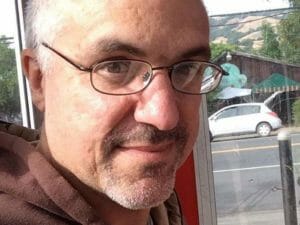 Emanuel Sferios is an activist, educator and harm reduction advocate. Founding DanceSafe in 1998 and starting the first laboratory pill analysis program for ecstasy users that same year (now hosted at Ecstasydata.org), Emanuel pioneered MDMA harm reduction services in the United States. His MDMA Neurochemistry Slideshow has been viewed over 30 million times and remains a primary educational resource for physicians, teachers, drug abuse prevention counselors and MDMA users alike. Emanuel resigned from DanceSafe in 2001 and went on to work in other areas of popular education and harm reduction. He has recently come back as a volunteer. Oh! And he’s making a movie. Emanuel Sferios is an activist, educator and harm reduction advocate. Founding DanceSafe in 1998 and starting the first laboratory pill analysis program for ecstasy users that same year (now hosted at Ecstasydata.org), Emanuel pioneered MDMA harm reduction services in the United States. His MDMA Neurochemistry Slideshow has been viewed over 30 million times and remains a primary educational resource for physicians, teachers, drug abuse prevention counselors and MDMA users alike. Emanuel resigned from DanceSafe in 2001 and went on to work in other areas of popular education and harm reduction. He has recently come back as a volunteer. Oh! And he’s making a movie. LinksDrug Positive Independent - Meet the Man Who Wants your to Him him Legalise MDMA DanceSafe - Wiki DanceSafe MDMA The Movie | |||
| 09 Jan 2024 | PT476 – Mike Margolies – Reinventing Organizations, Lessons From Burning Man, and Batman & The Joker | 01:15:06 | |
In this episode, Joe interviews Mike Margolies: community catalyst; conversation creator; Founder of Psychedelic Seminars; and Co-Founder and Co-Steward of the Global Psychedelic Society. The Global Psychedelic Society was created for all of the different psychedelic societies that have sprung up over the world to connect, share resources and information with each other, and be housed in a central hub so people can find them more easily. He talks about Frederic Laloux’s book, "Reinventing Organizations," and modeling the GPS around the “Teal” concept of organization, where employees are encouraged to show up as their true, honest, and most powerful selves; where it’s more about relationships than hierarchy; and more about embracing a mycelial – and psychedelic – way of thinking and interacting with each other. He breaks down how this way of thinking has progressed from the earliest ways of organizing, and discusses its three main principles of self-governance, wholeness, and evolutionary purpose. He then talks about the Boom Festival: its “Liminal Village,” its inventive Kosmicare harm reduction program, and how drugs are not as decriminalized as people think in Portugal; and Burning Man: how it all came together for him this year when he didn’t even want to go, his experiences with the rain and a friend’s dreams warning of floods, what he learned from the ghost of a lost friend, and how that resulted in the concept of Batman doing a striptease to Seal’s “Kiss From a Rose.” Is the Joker simply a manifestation of Batman’s shadow material and his desire to be a hero? Yea, this one gets weird… | |||
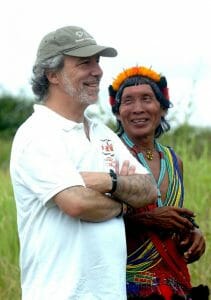
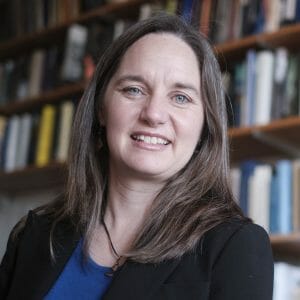



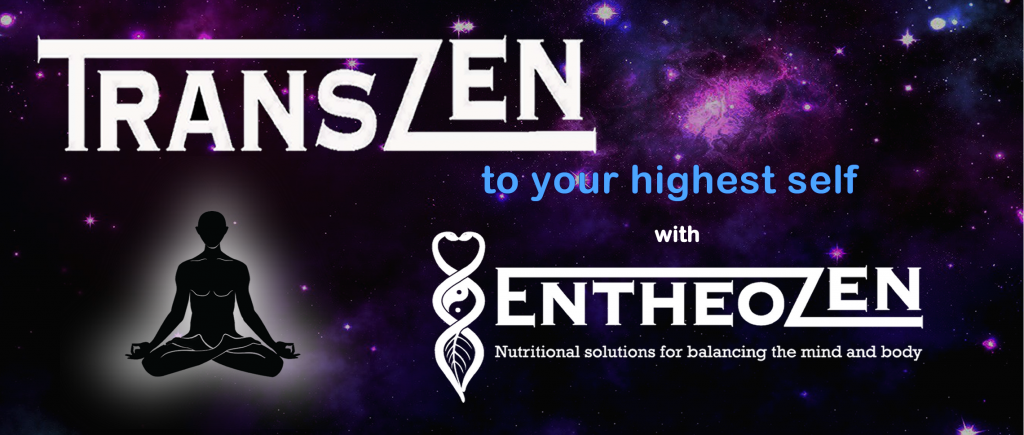
 After struggling with her own battle with depression and anxiety, Caitlin Thompson applied her background in neurobiology and dove into the cutting edge scientific literature on mood disorders and mental illnesses. This led her down a health rabbit hole, realizing that Lyme disease, small intestinal bacterial overgrowth, microbiome dysbiosis and emotional trauma were at the root of her and many others’ depression. After successfully improving her own health, Caitlin founded her nutritional supplement company, EntheoZen in 2014. Caitlin now uses EntheoZen as a platform to spread information about modalities and tools to empower others to heal and achieve optimal mental wellness. Caitlin also works in the psychedelic field advocating for psychedelic research and education around their implications in mental wellness and autoimmune conditions. Caitlin is also a certified Kambo frog medicine practitioner based in San Diego CA.
After struggling with her own battle with depression and anxiety, Caitlin Thompson applied her background in neurobiology and dove into the cutting edge scientific literature on mood disorders and mental illnesses. This led her down a health rabbit hole, realizing that Lyme disease, small intestinal bacterial overgrowth, microbiome dysbiosis and emotional trauma were at the root of her and many others’ depression. After successfully improving her own health, Caitlin founded her nutritional supplement company, EntheoZen in 2014. Caitlin now uses EntheoZen as a platform to spread information about modalities and tools to empower others to heal and achieve optimal mental wellness. Caitlin also works in the psychedelic field advocating for psychedelic research and education around their implications in mental wellness and autoimmune conditions. Caitlin is also a certified Kambo frog medicine practitioner based in San Diego CA. 